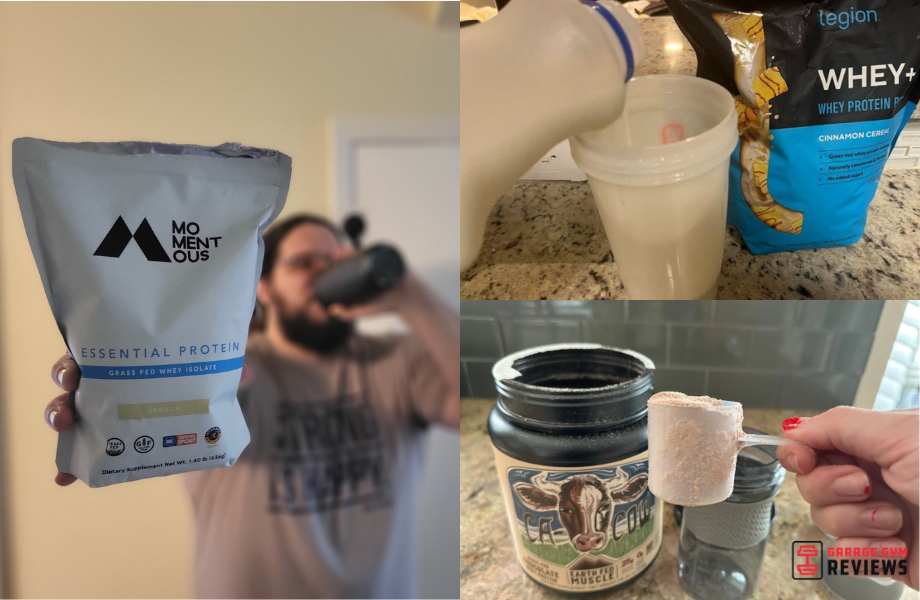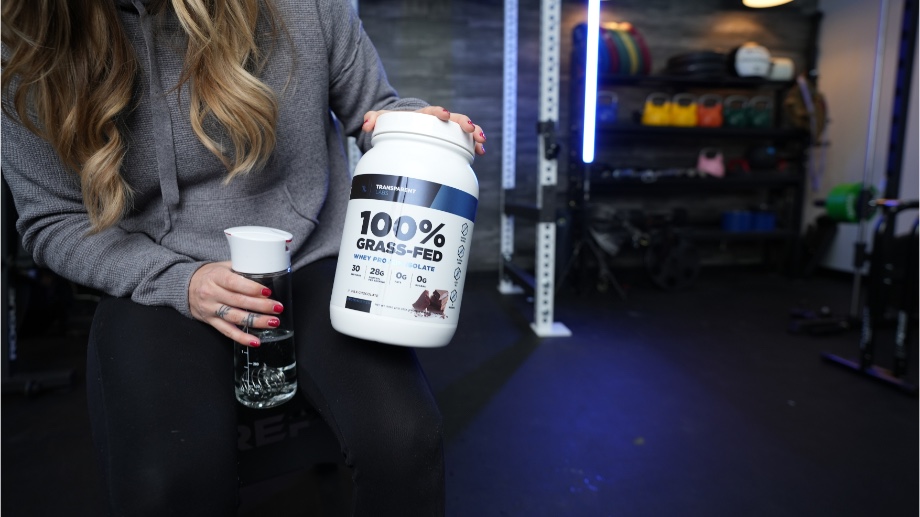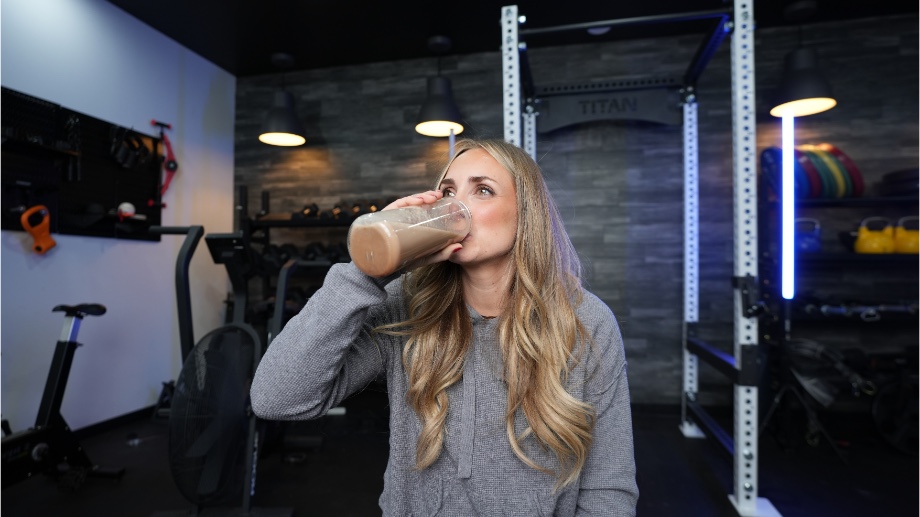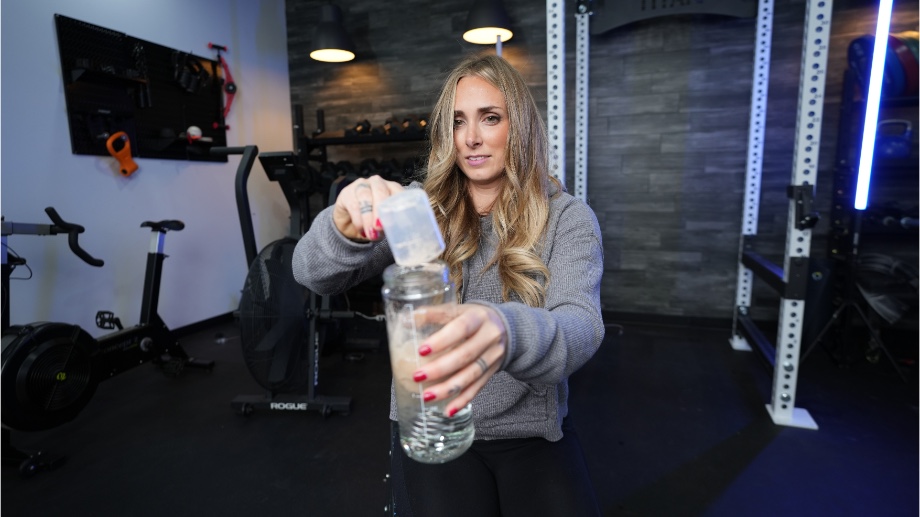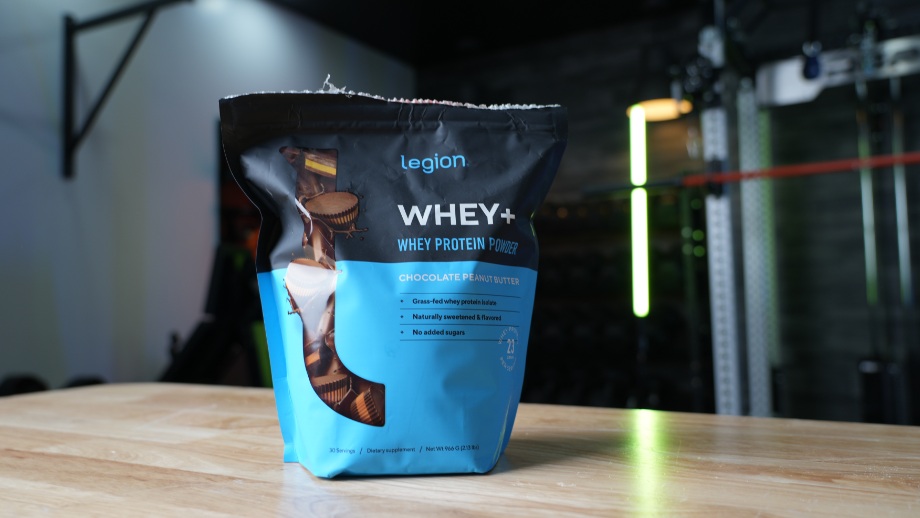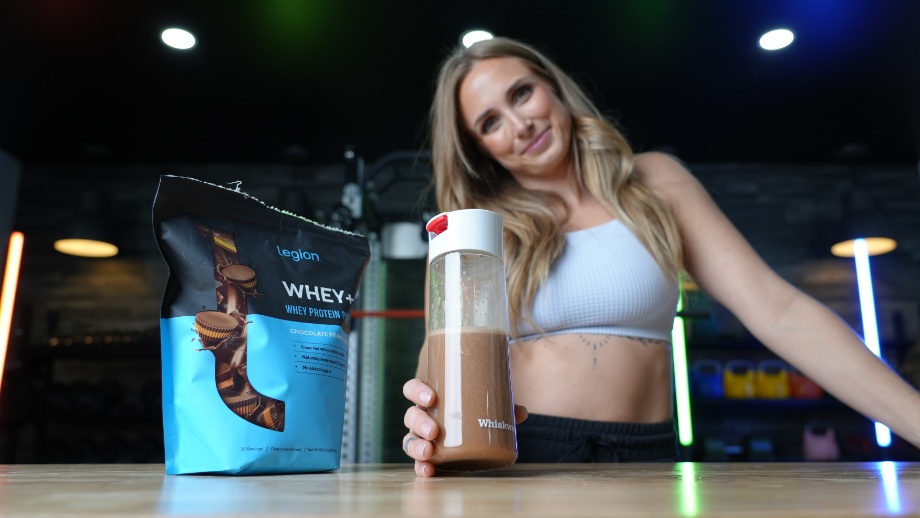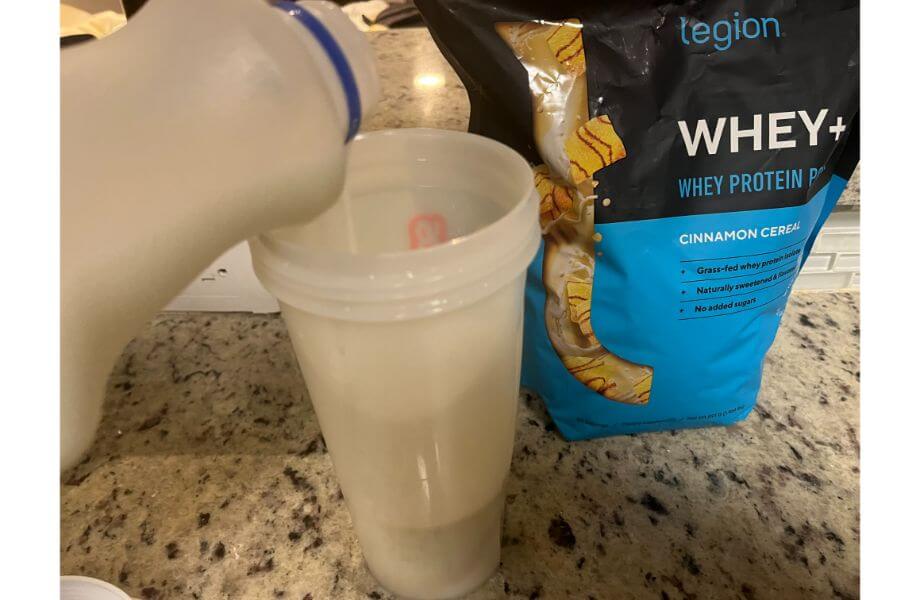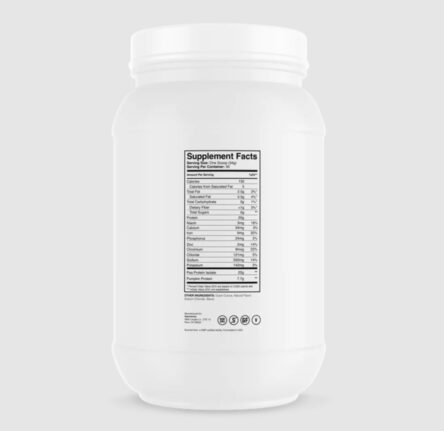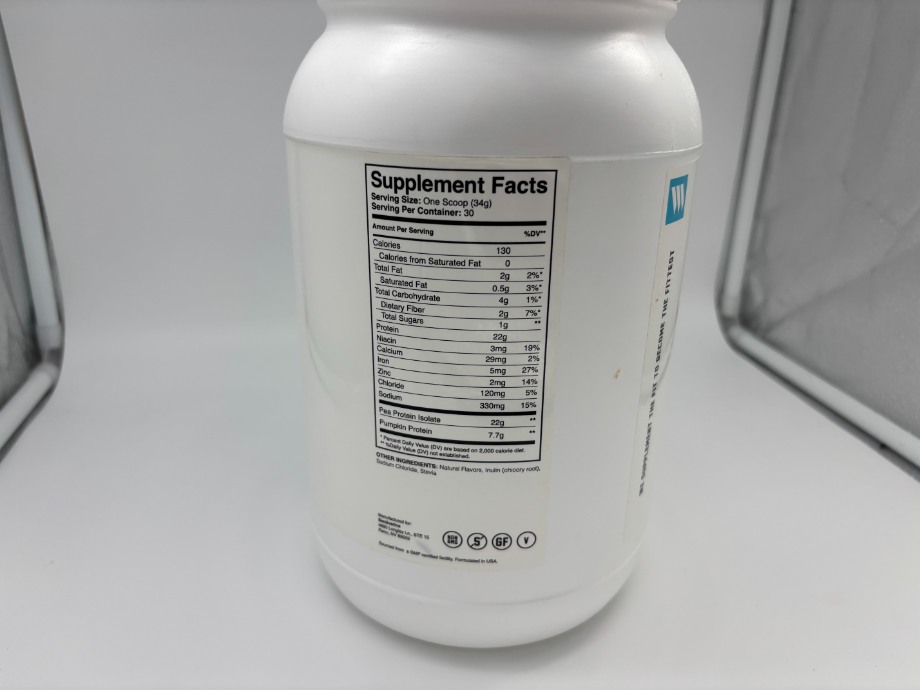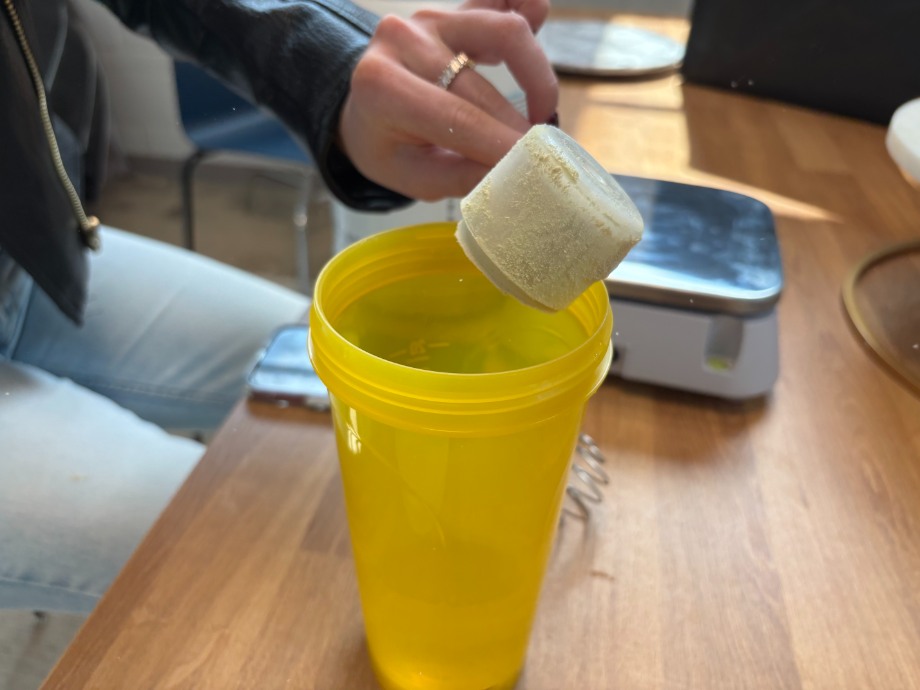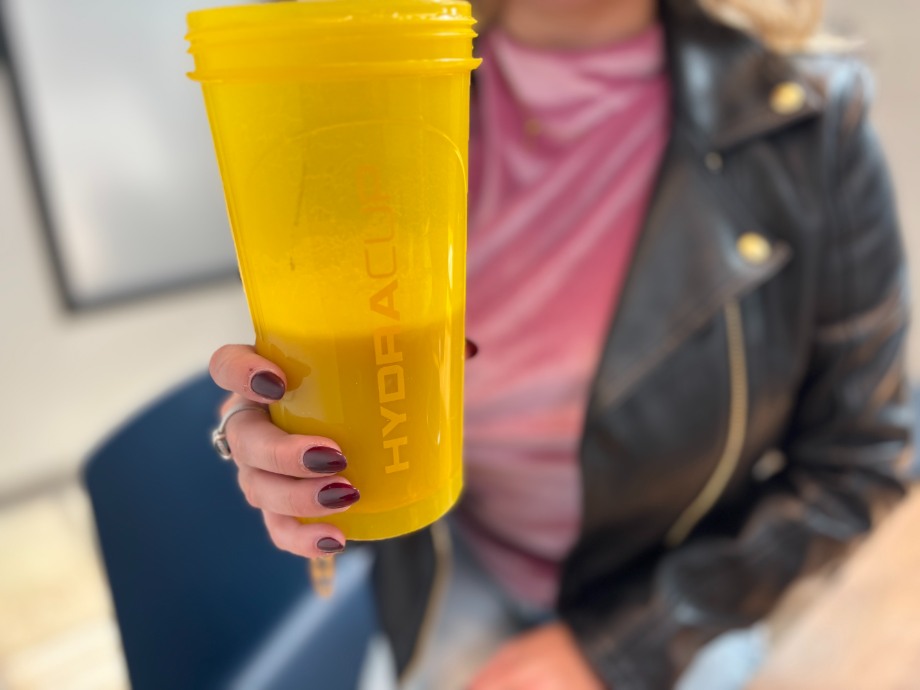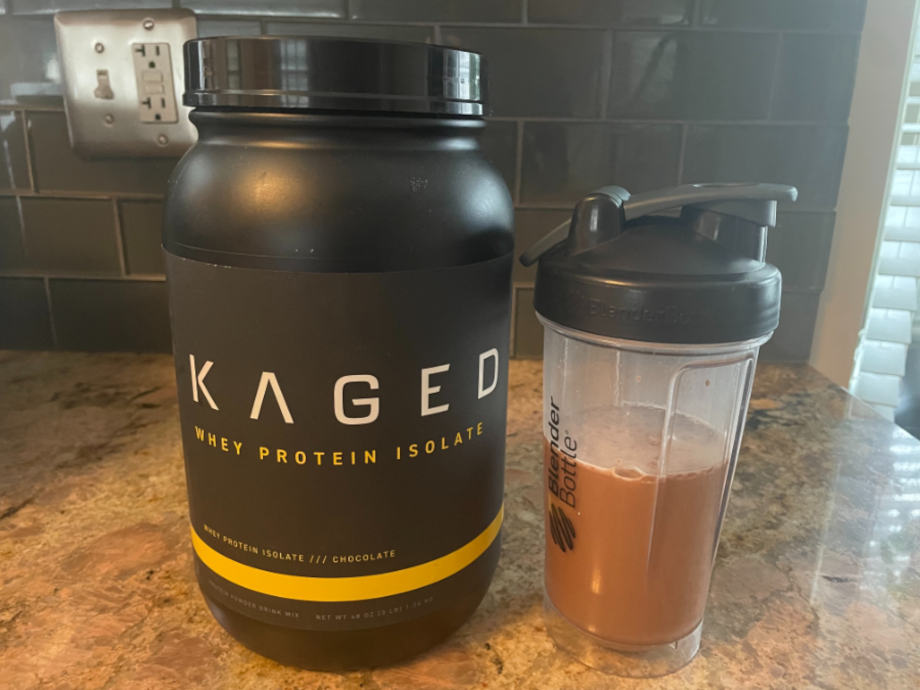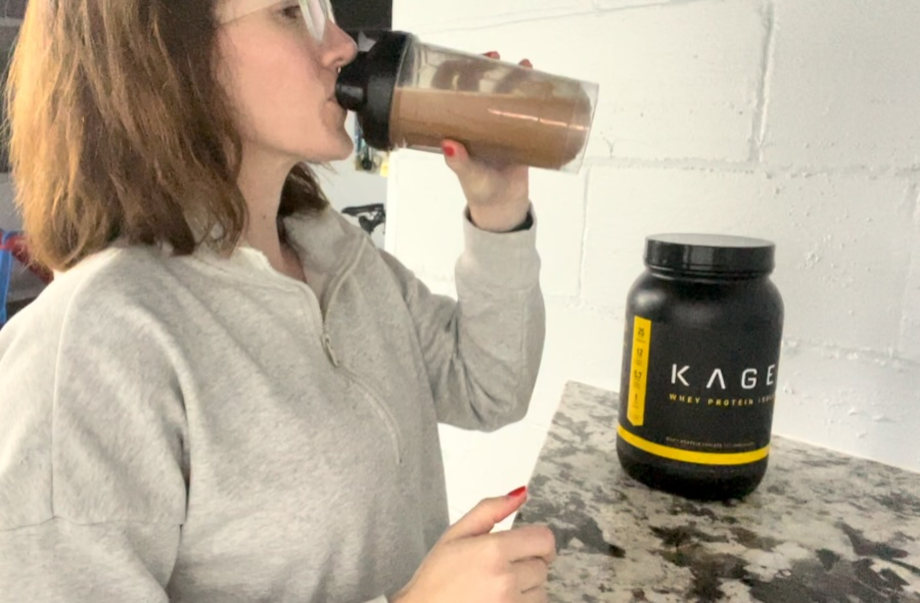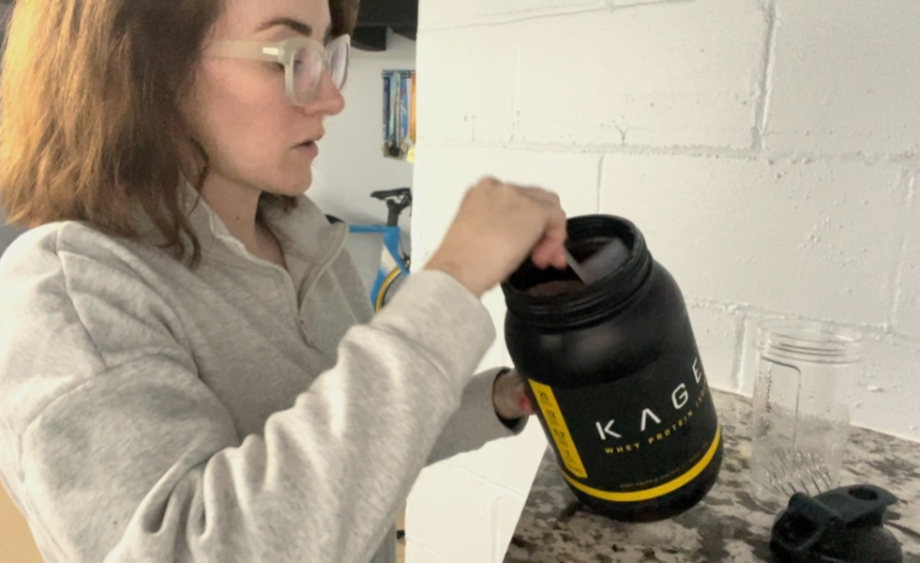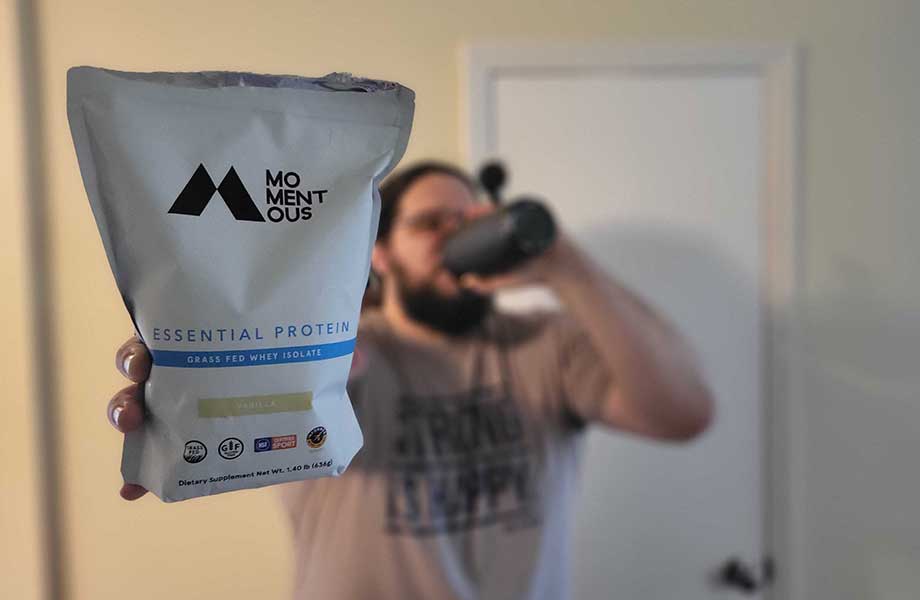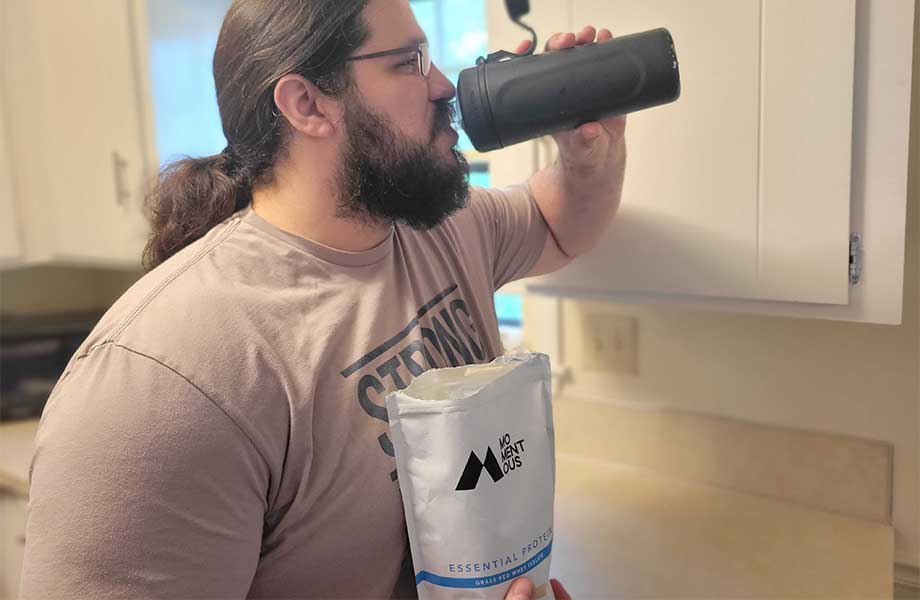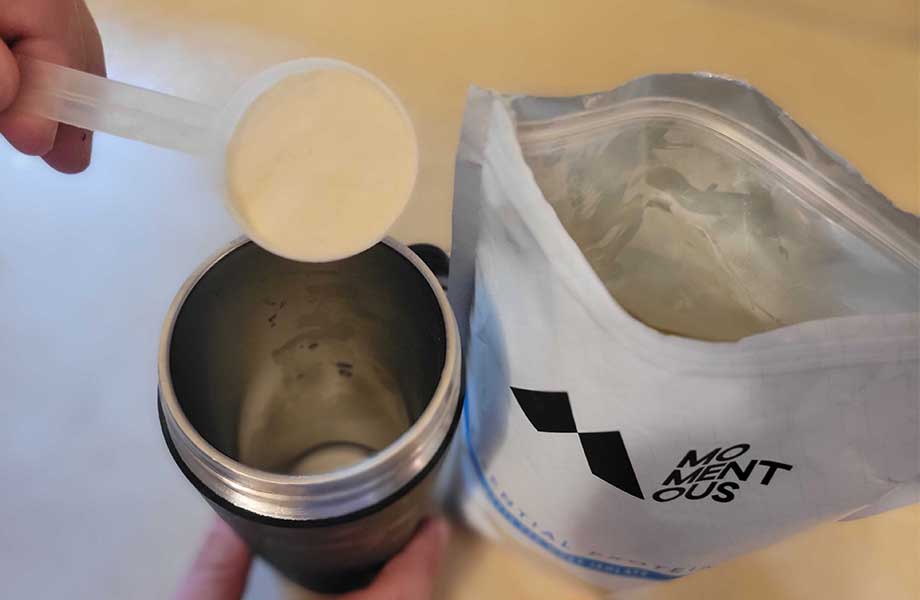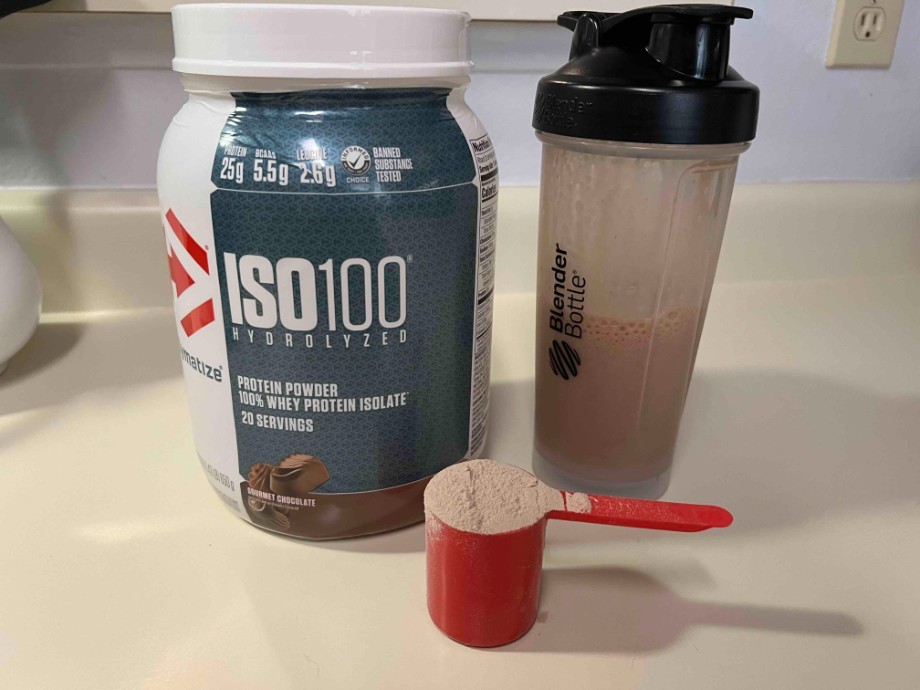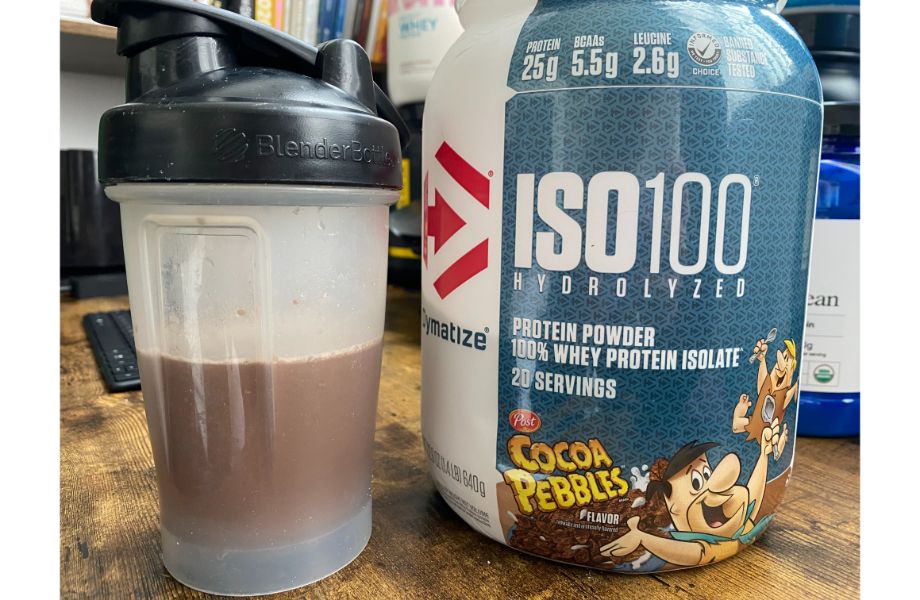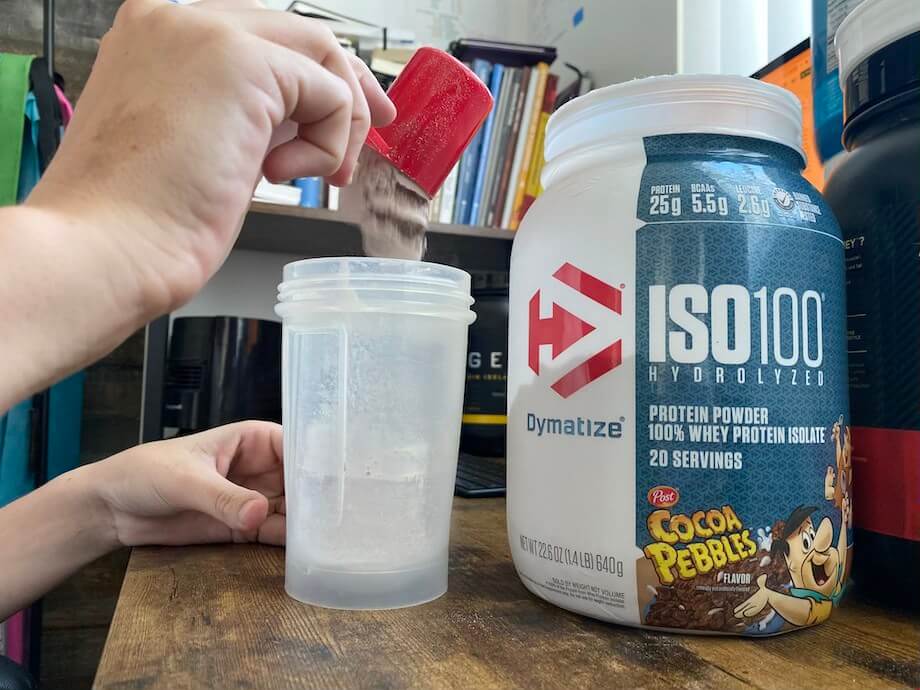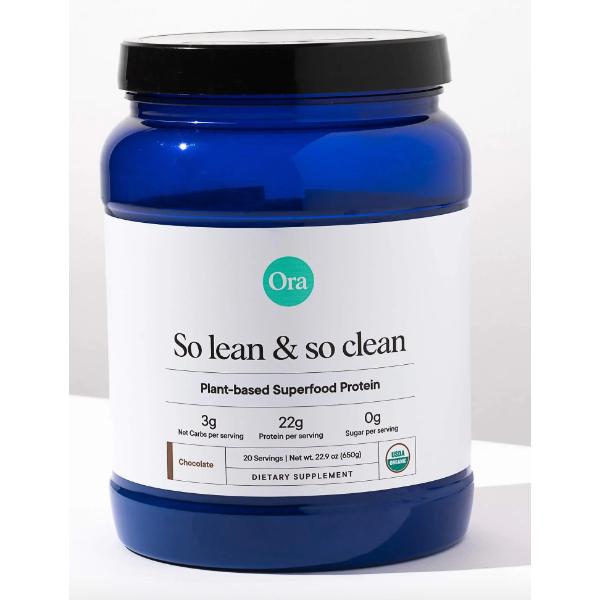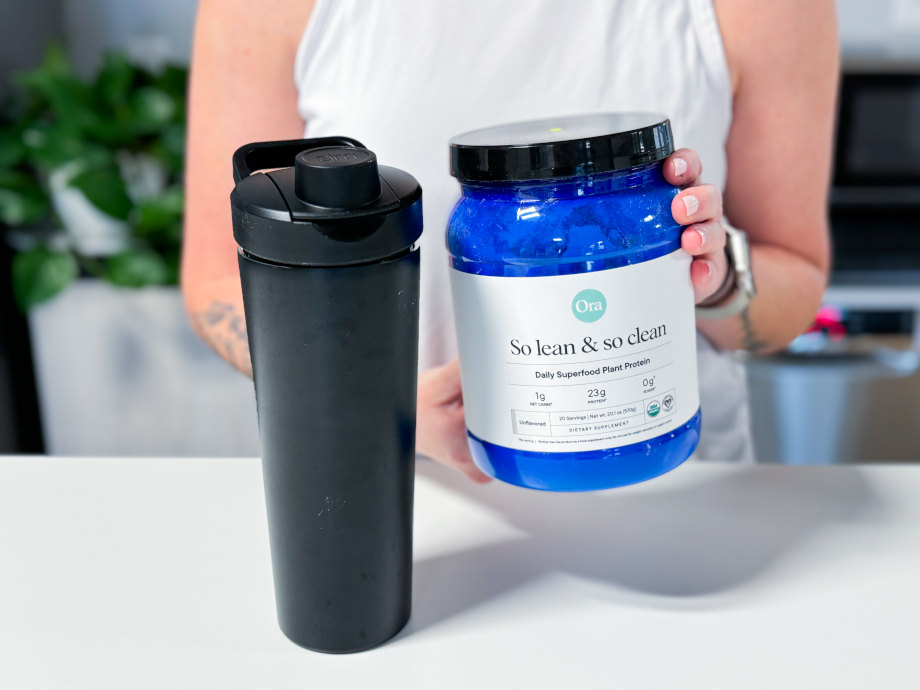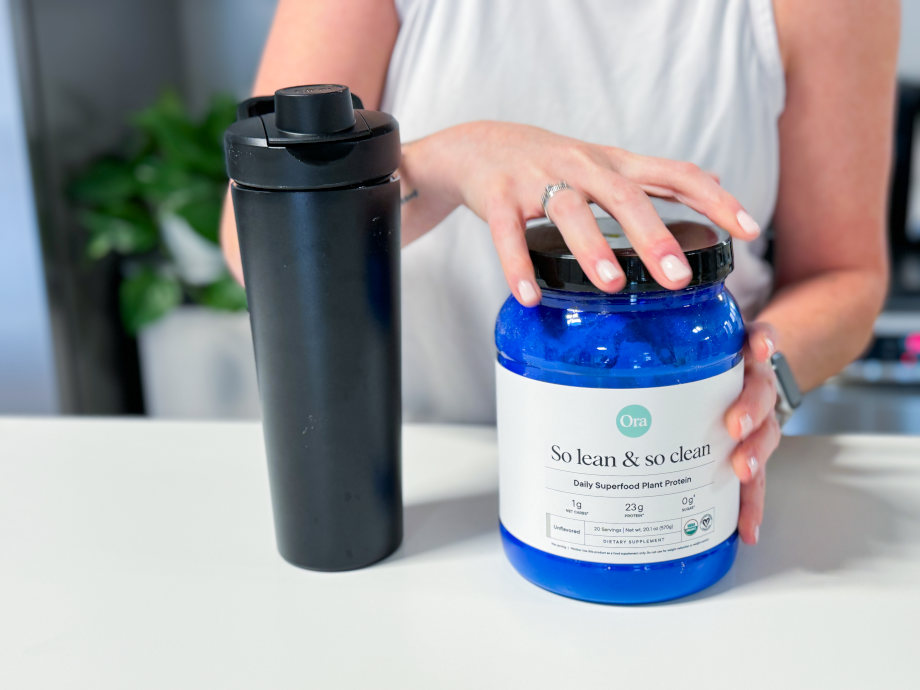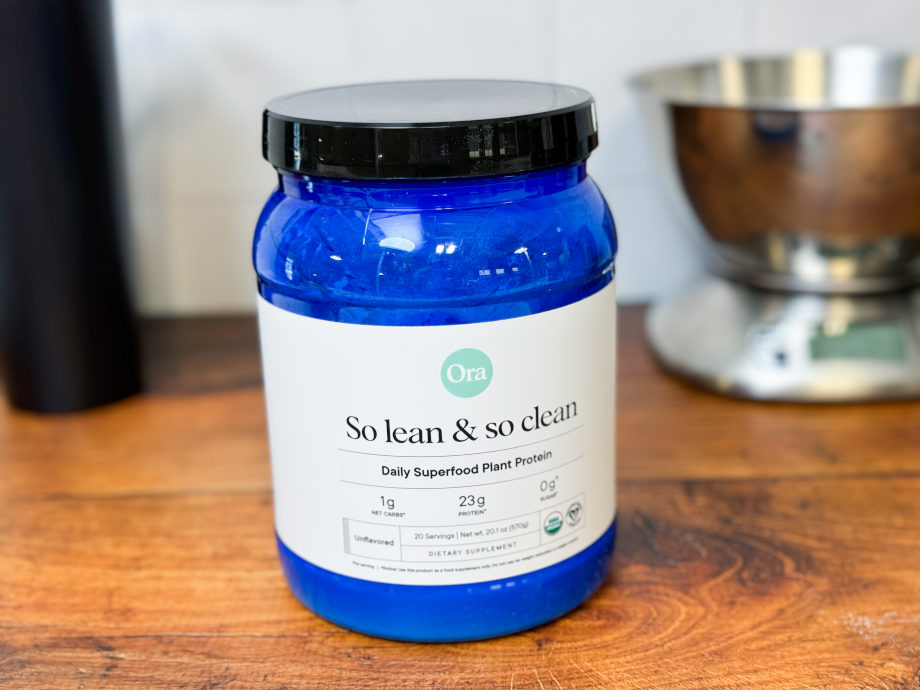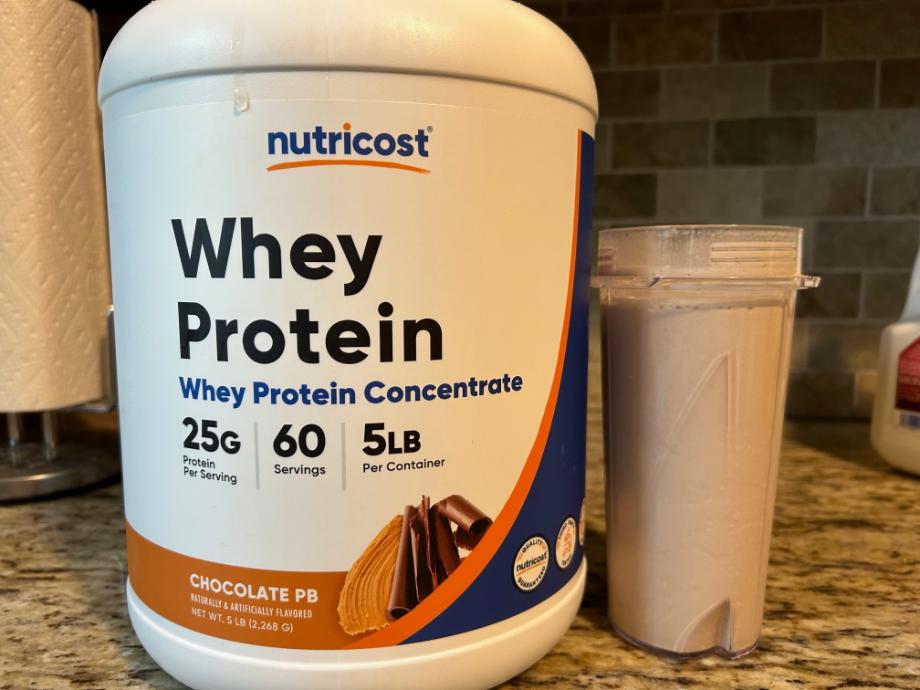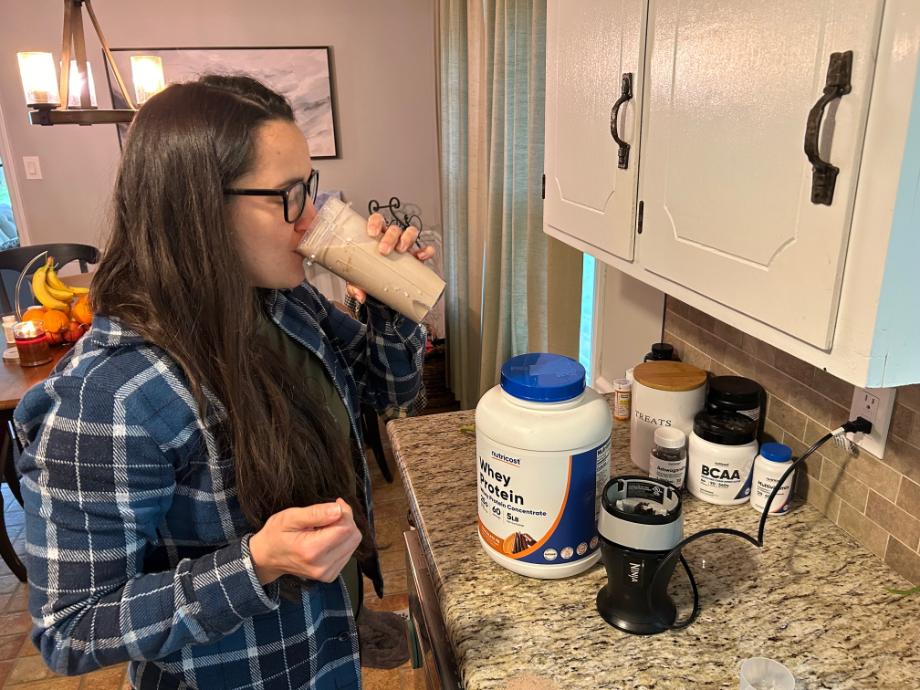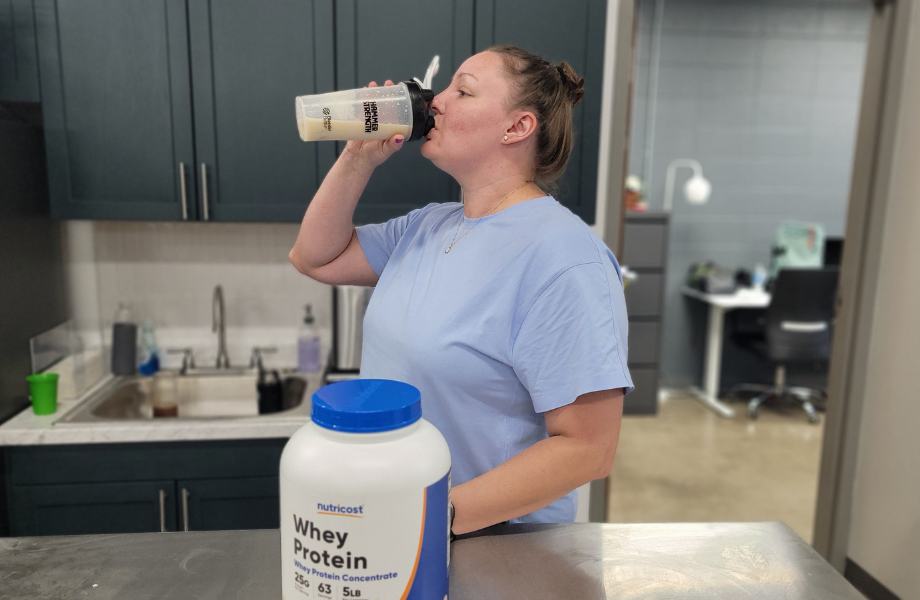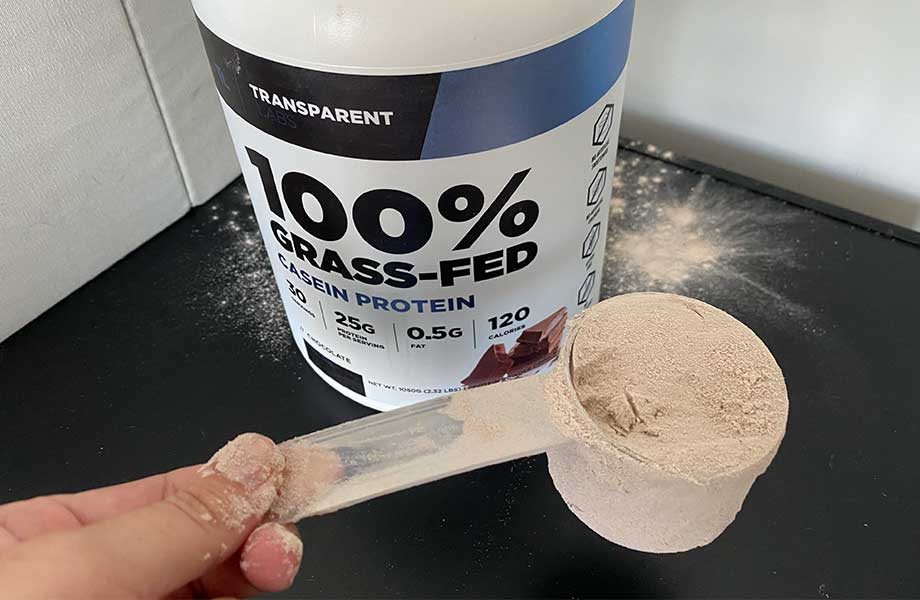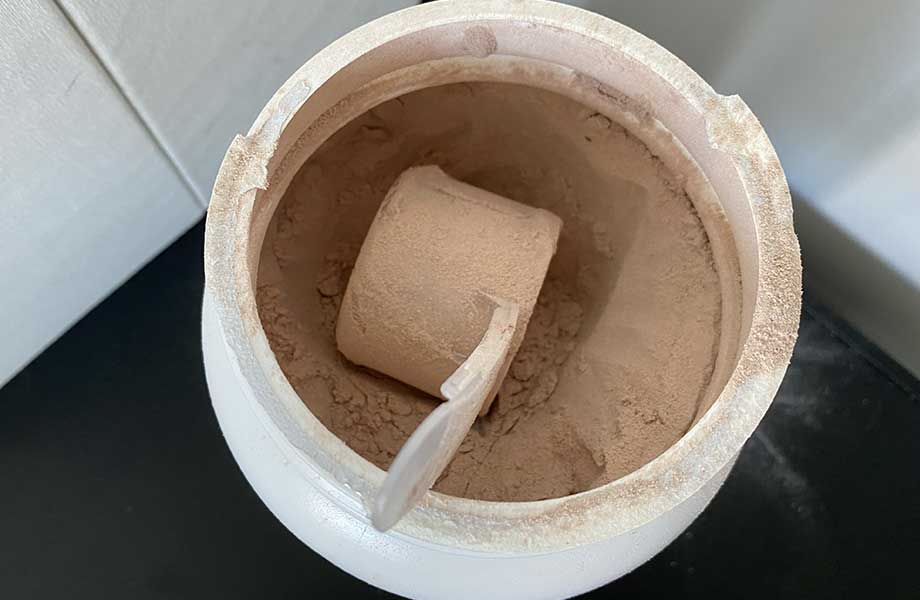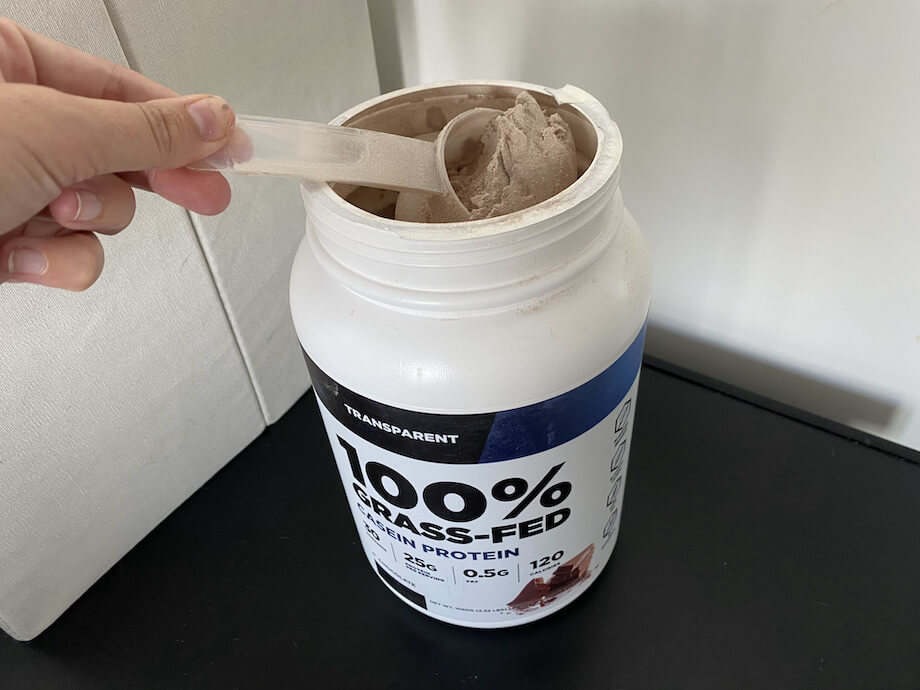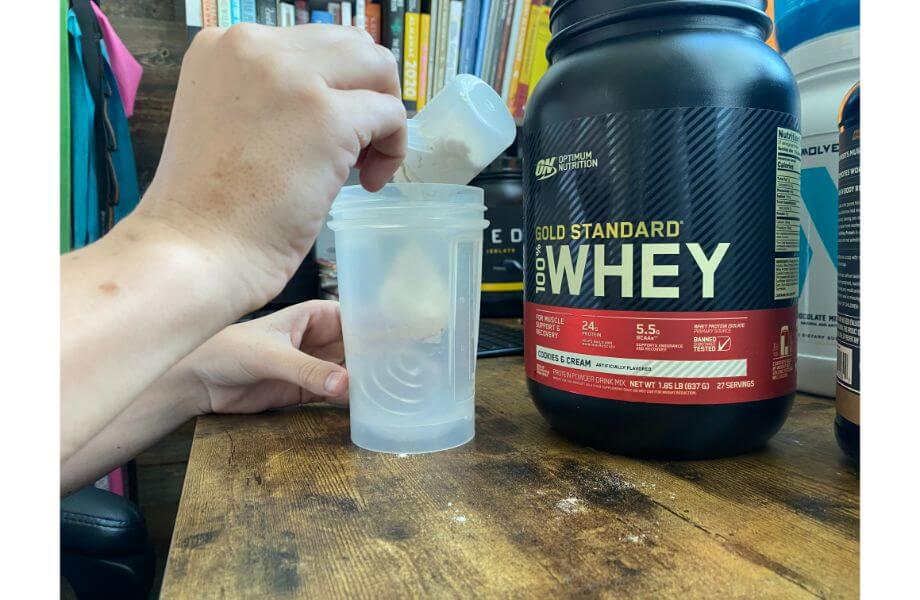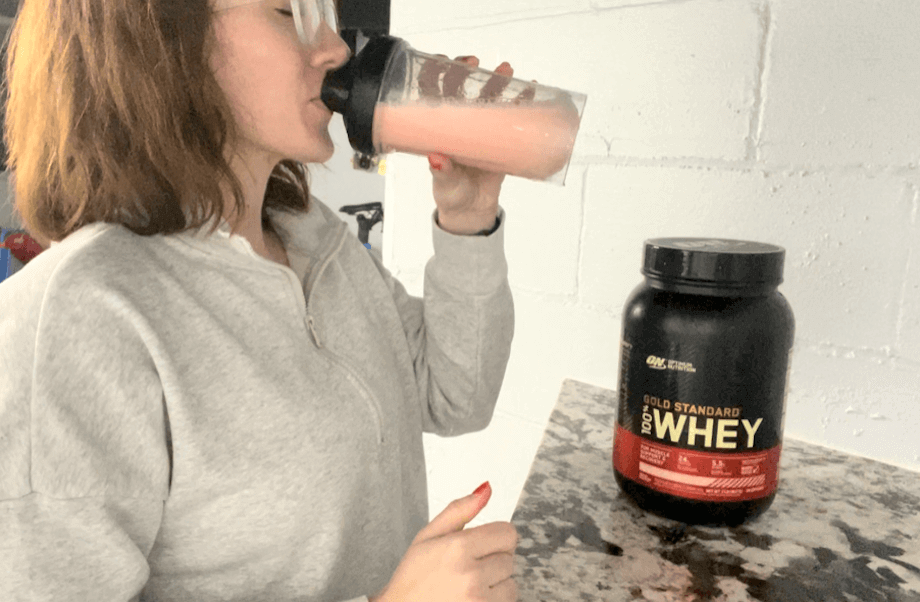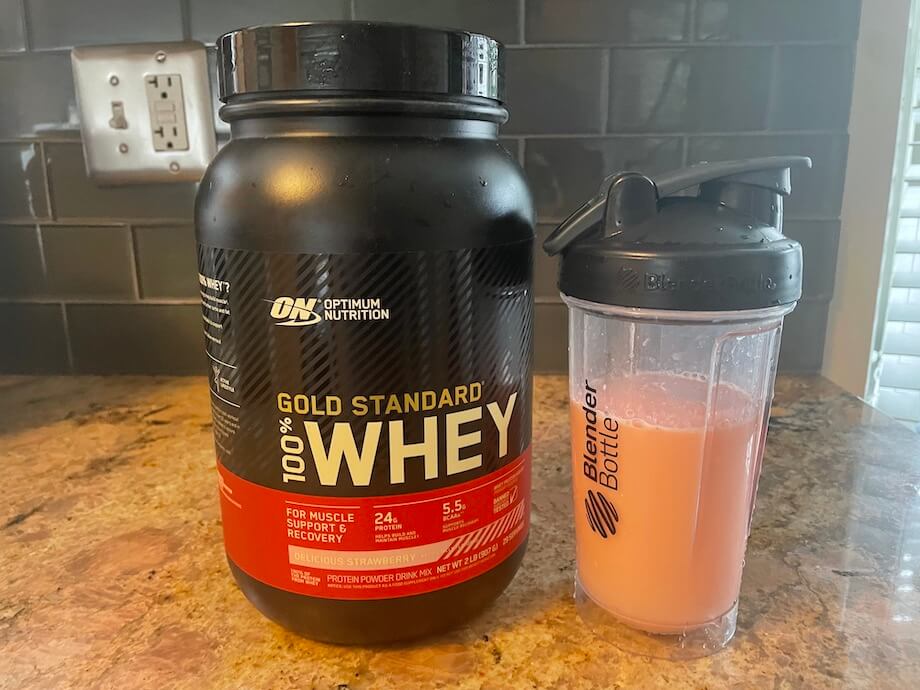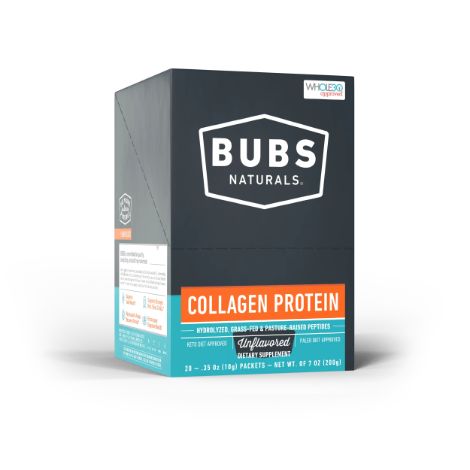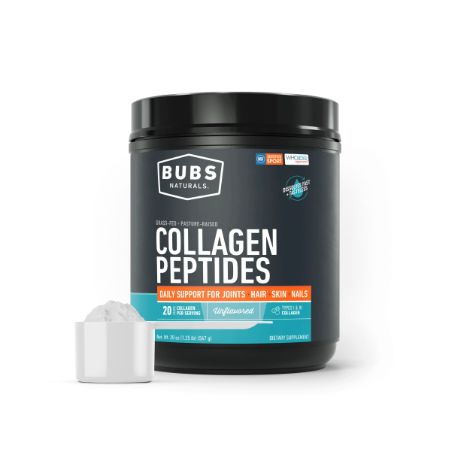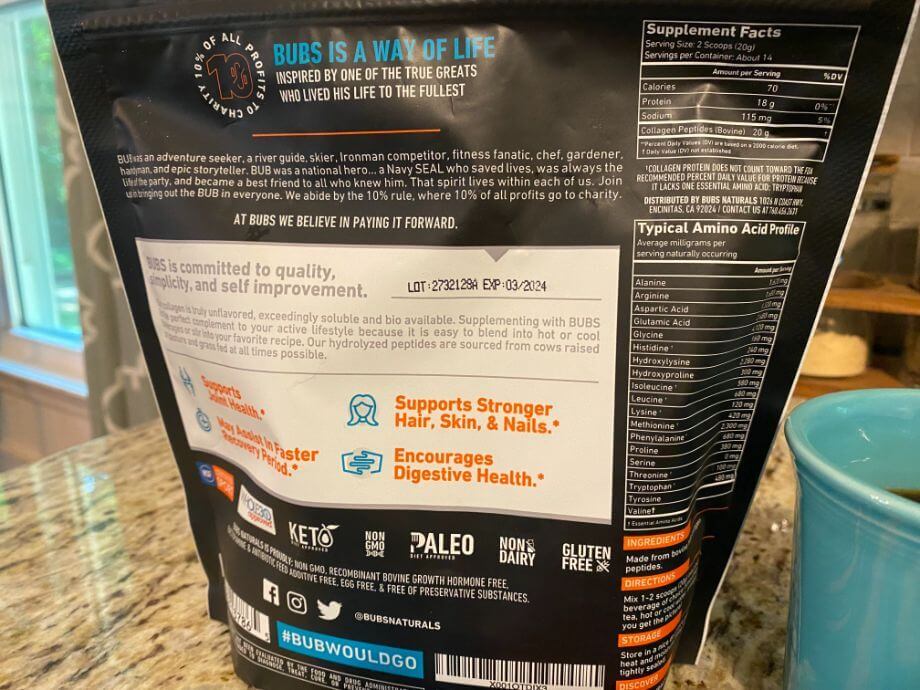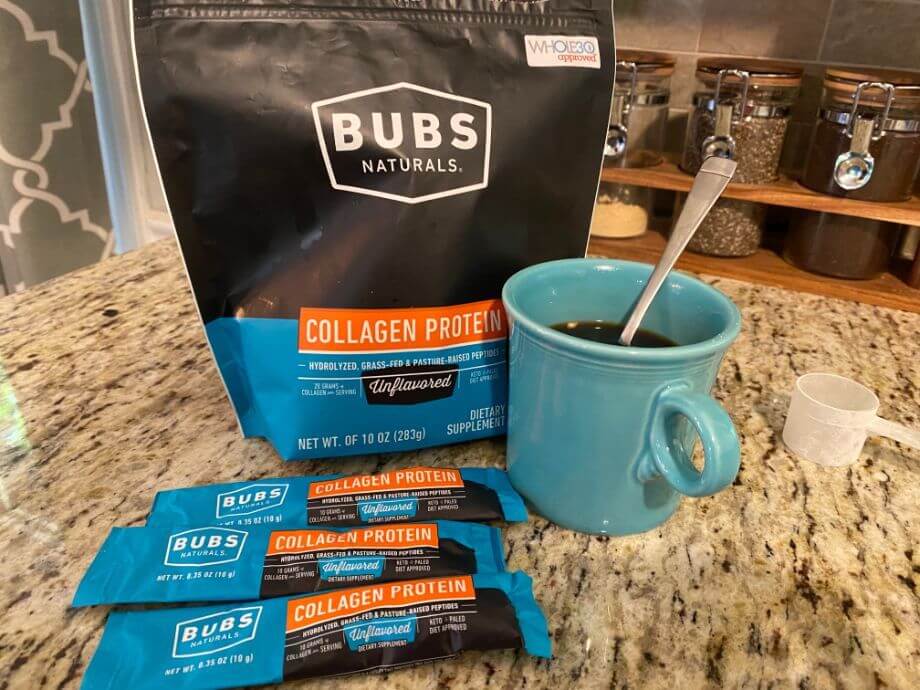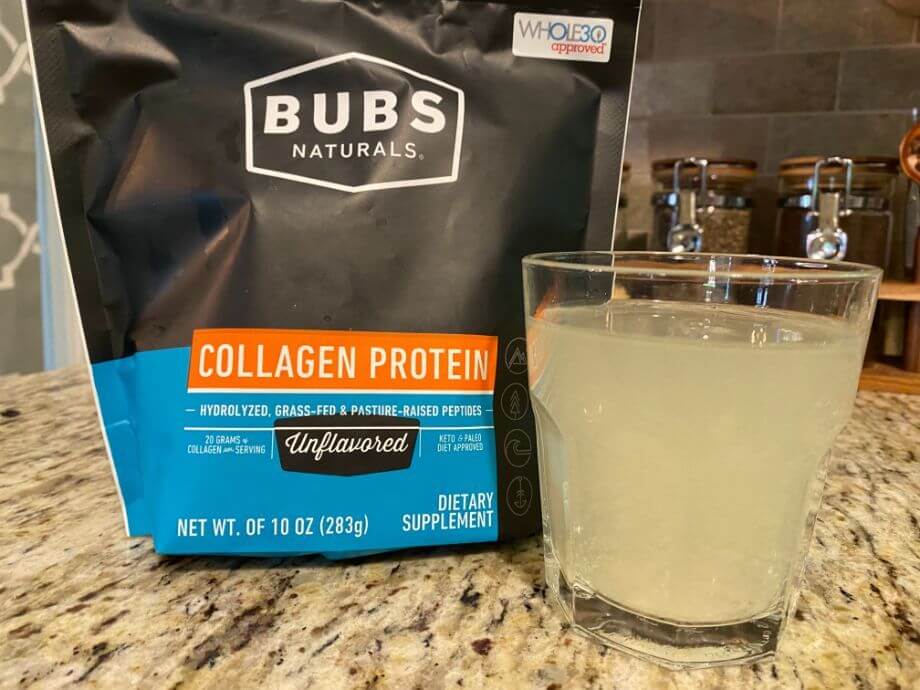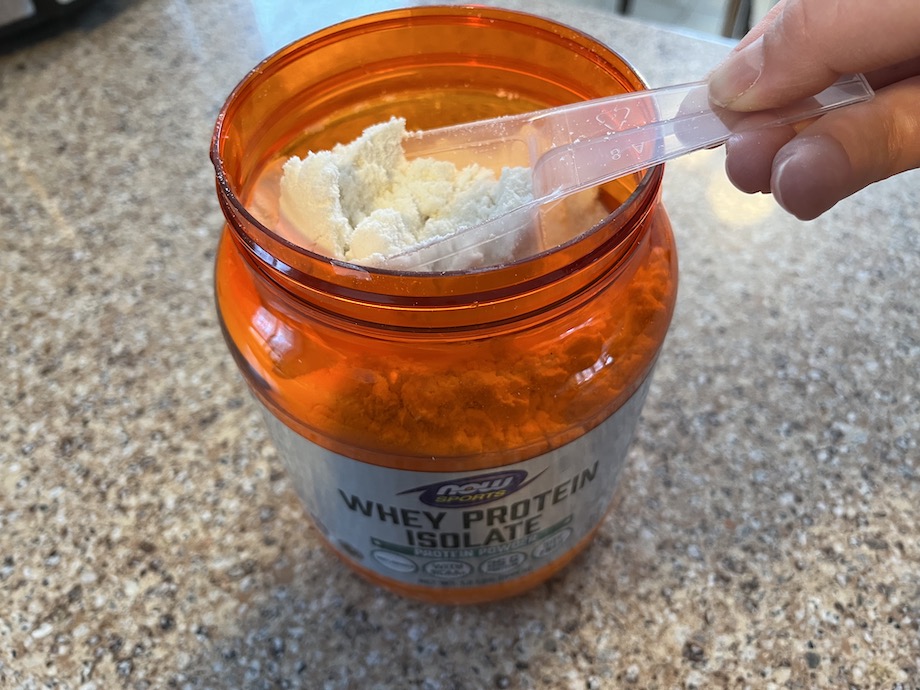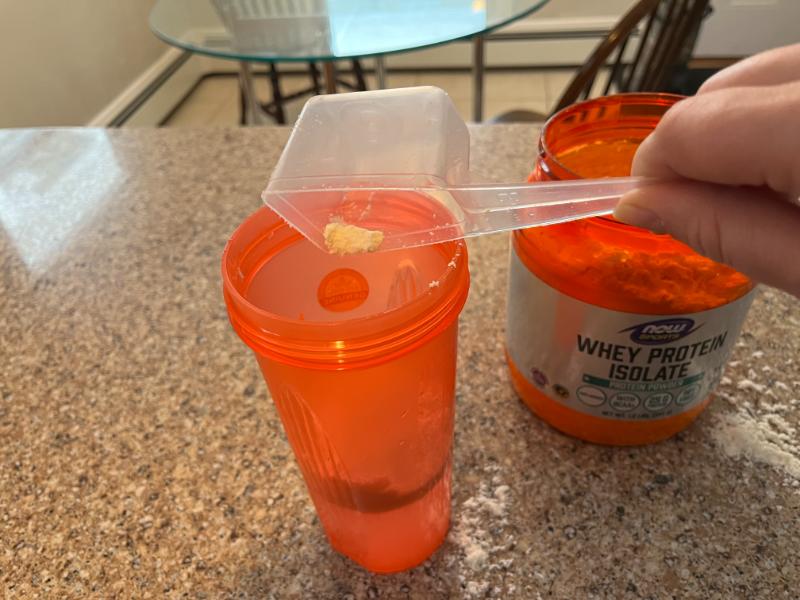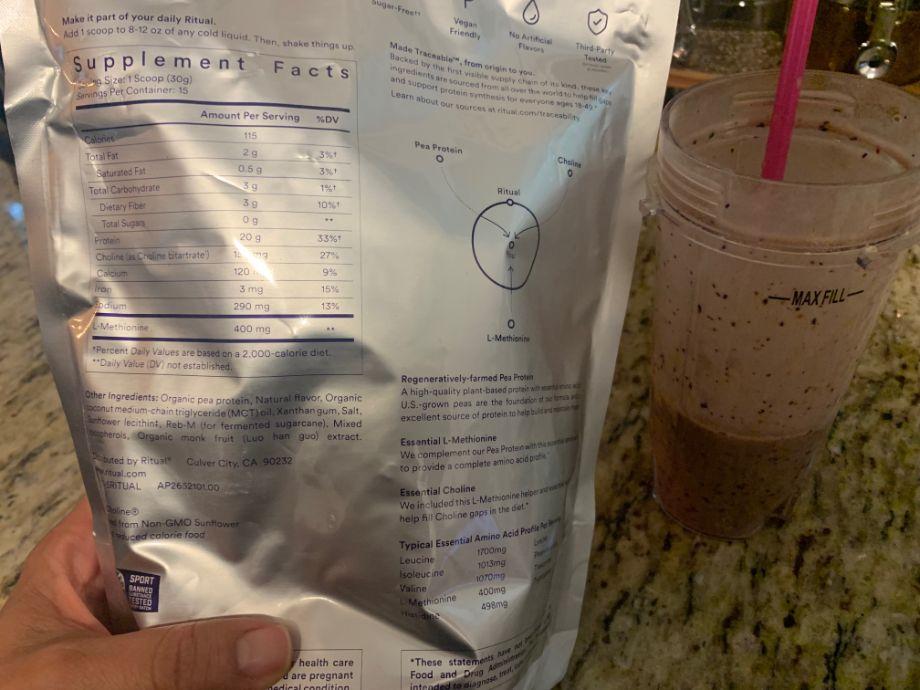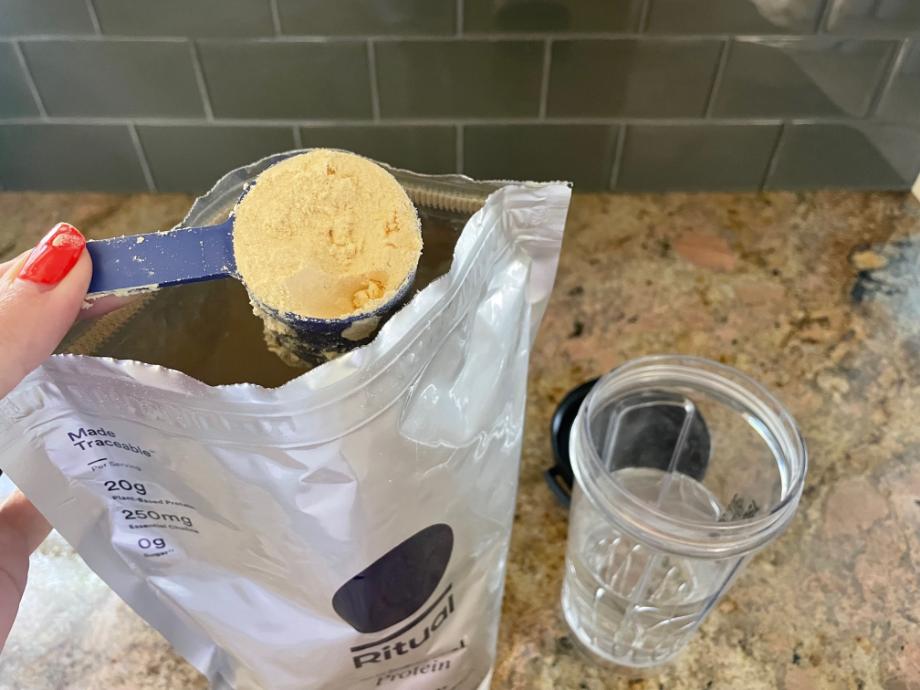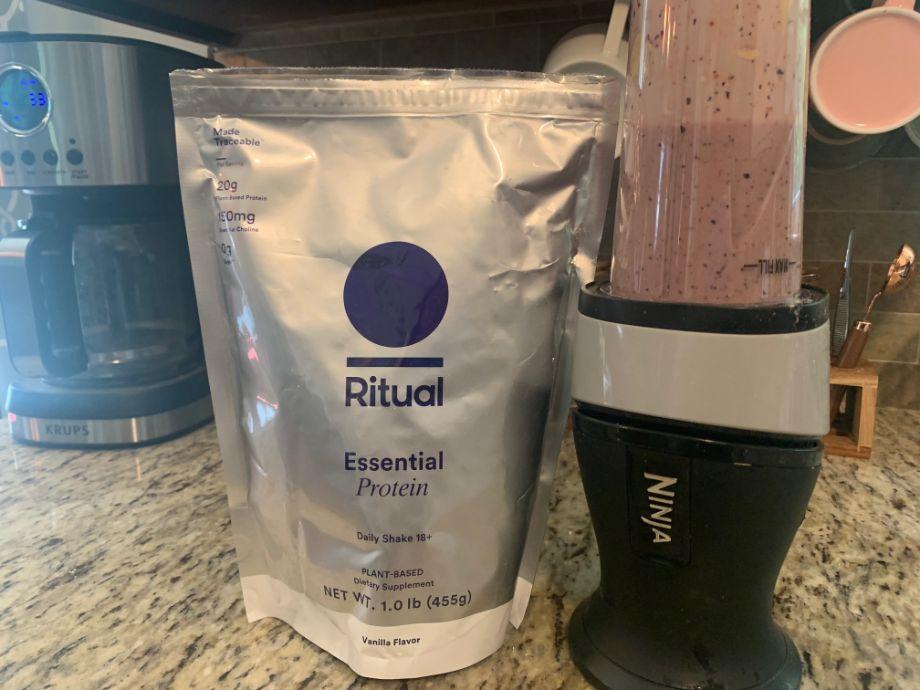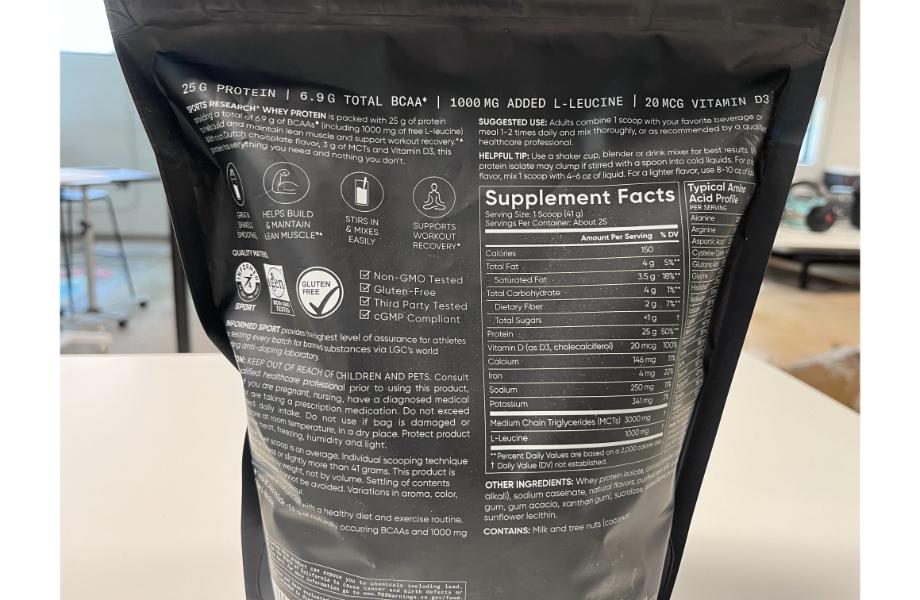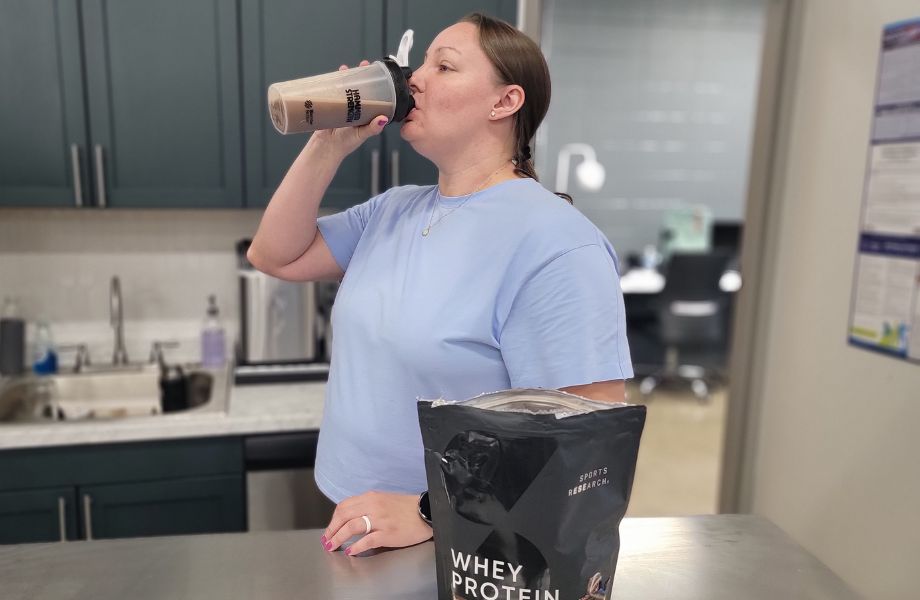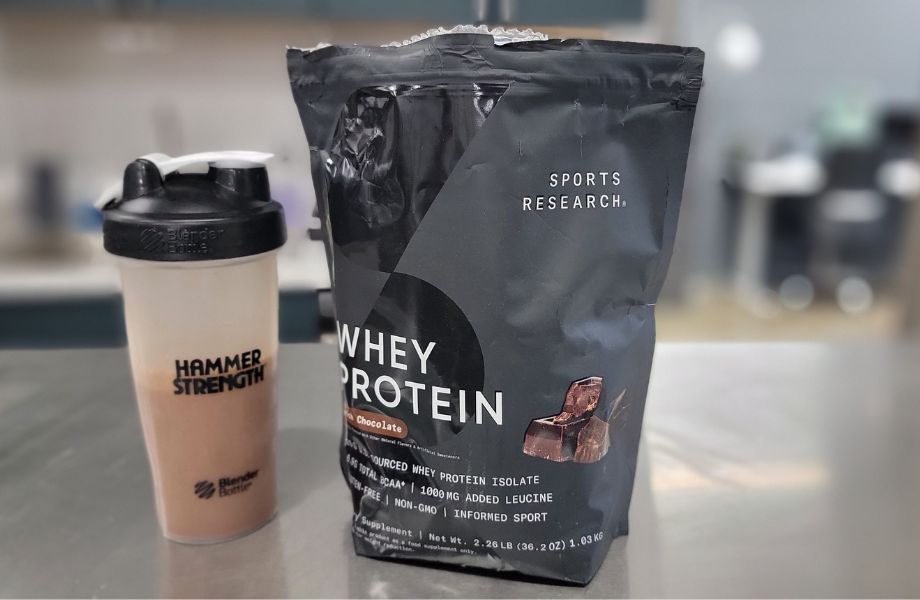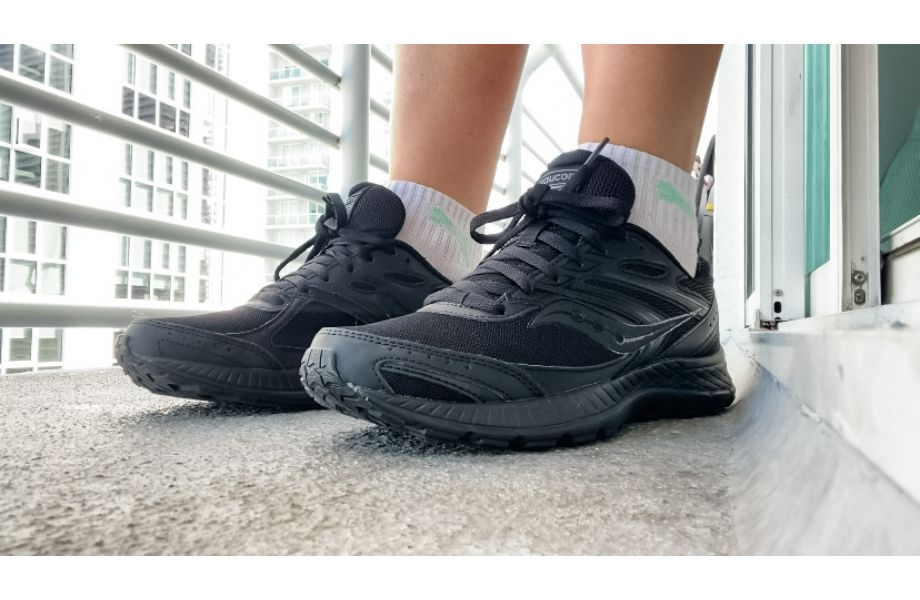If you’ve ever been in a supplement store, you know just how many protein powder varieties there are. Even if you know your fitness goals—losing weight, building muscle, or maintaining your daily protein intake—it is overwhelming to choose the best protein powder out of all of them.
Our team of certified nutrition coaches, personal trainers, weightlifting coaches, and elite athletes has collective decades of experience in the fitness industry. Each of us consumes protein powder regularly, including the best whey proteins, casein proteins, collagen proteins, and plant-based proteins; in fact, we’ve tried over 150 protein powders over the years.
For this best-of list, we consulted with Laila Ouldibbat, RD, a New York City-based registered dietitian who’s pursuing a Ph.D. in Biological Sciences, and Perry Nix, MS, RD, LD, to give you our top picks for the best protein powder. We followed our in-depth protein powder testing methodology to evaluate each product on the following factors, giving them a score of 1 to 5 for each category:
- Formulation: Protein powders were given a 4 out of 5 if they contained at least 20 grams of protein, with considerations for added ingredients. We also looked for any use of artificial ingredients, which some users may wish to avoid. Perfect 5-out-of-5 scores were given to products high in protein that didn’t use any artificial ingredients or fillers.
- Taste: An average protein powder tasted fine to our testers; not the best, but not the worst—our standard for a 3-out-of-5 rating. The highest taste scores were awarded to the flavors we loved and looked forward to having again.
- Transparency and third-party testing: Has it been tested for potential contaminants and banned substances? Are there any certifications of analysis (COAs)? For a 3 out of 5, the manufacturer seems fairly transparent, but the product is not certified by a major organization like NSF, Informed Choice/Sport, or Banned Substance Control Group (BSCG).
- Price per serving: The average protein powder we’ve tested costs around $1.85 per serving. We give 3 out of 5 stars to proteins that cost between $1.50 and $1.90 per serving.
We worked with an independent, accredited lab—Ellipse Analytics—to test and rate more than 150 protein powders for purity and label accuracy. The lab analyzed each protein powder for the presence of heavy metals, harmful chemicals, and pesticides, since frequent or significant exposure to these substances can negatively impact your health. The protein powders below ranked in the top 50% of the samples tested. Finally, we asked Dr. Jennie Stanford, MD, with a degree in nutrition and dietetics, to medically review this content for accuracy and updated studies.
The GGR team helped over 13,500 people find their ideal protein powder in 2024; now, let’s find yours.
Medical disclaimer: This article is intended for educational and informational purposes only. It is not intended as a substitute for medical advice. For health advice, contact a licensed healthcare provider.
GGR Gold Pick — Best Protein Powder
After testing more than 150 protein powders, Transparent Labs 100% Grass-Fed Whey Protein Isolate stands out as our top pick, earning a 4.6-star rating for its high-quality ingredients, lack of artificial sweeteners, and trusted third-party testing.
The 14 Best Protein Powders, Tested by a Lab and Athletes
- Best Overall Protein Powder – Transparent Labs 100% Grass-Fed Whey Protein Isolate
- Best Clean Protein Powder – Legion Whey+ Certified Grass-Fed Irish Whey Protein Isolate
- Best Plant-Based Protein Powder – Swolverine Plant Protein
- Best Chocolate Whey Protein Powder – Kaged Whey Protein Isolate
- Best Whey Protein Powder – Momentous Essential Grass-Fed Whey
- Best Budget Protein Powder – Dymatize ISO 100
- Best Organic Protein Powder – Ora Organic Daily Superfood Plant Protein
- Best-Tasting Protein Powder – Nutricost Whey Protein Concentrate
- Best Casein Protein Powder – Transparent Labs Casein Protein
- Best Protein Powder for Muscle Gain – Optimum Nutrition Gold Standard 100% Whey
- Best Collagen Protein Powder – BUBS Naturals Collagen Protein Powder
- Best Unflavored Protein Powder – NOW Sports Whey Protein Isolate
- Best Protein Powder for Weight Loss – Ritual Essential Protein Daily Shake
- Best Protein Powder for Smoothies – Sports Research Whey Isolate
Current Top Deals
- Legion Whey+ Certified Grass-Fed Irish Whey Protein Isolate – BOGO up to 50% off sitewide
- Kaged Whey Protein Isolate – 26% off with code 2026
- Transparent Labs Casein Protein – Save 10% when you subscribe
- Swolverine Plant Protein – Save up to 15% when you subscribe
Latest Updates
At Garage Gym Reviews, we are always testing the newest protein powders and updating this page to reflect our favorite finds. Our team of certified personal trainers, elite athletes, and home gym experts has tested 150+ protein powders, including whey protein isolates, casein protein, plant-based powders, and more. In January 2026, we updated this article to provide more information about the different types of protein powders on the market and how much protein you need per day.
Best Protein Powders Video Review

Compare Side By Side
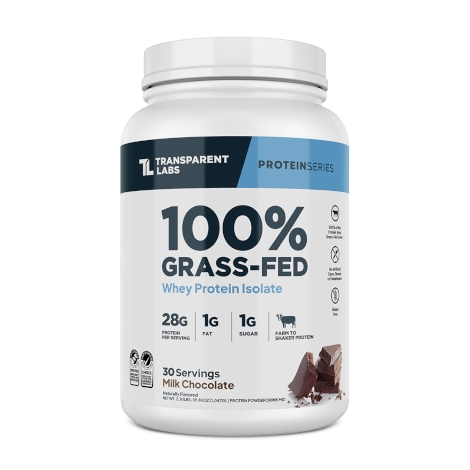
|
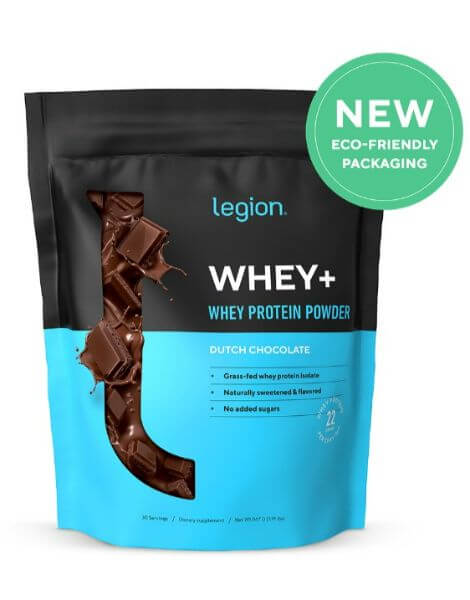
|
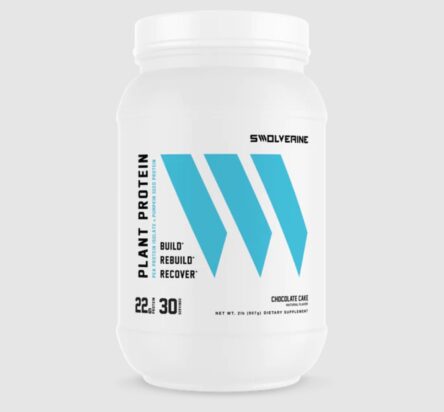
|
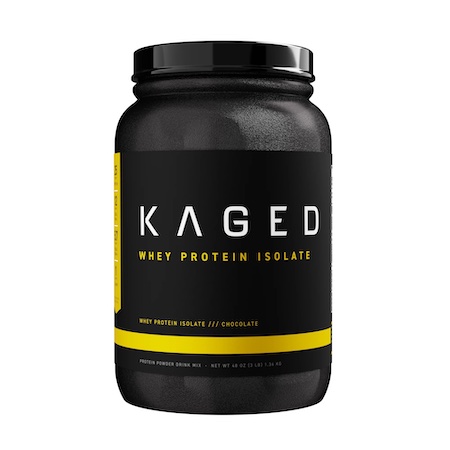
|
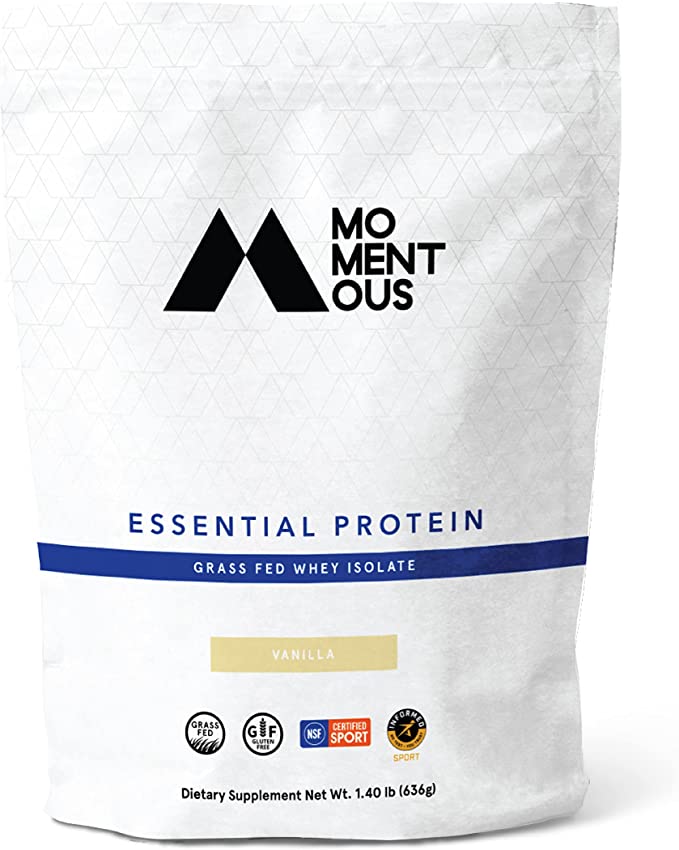
|
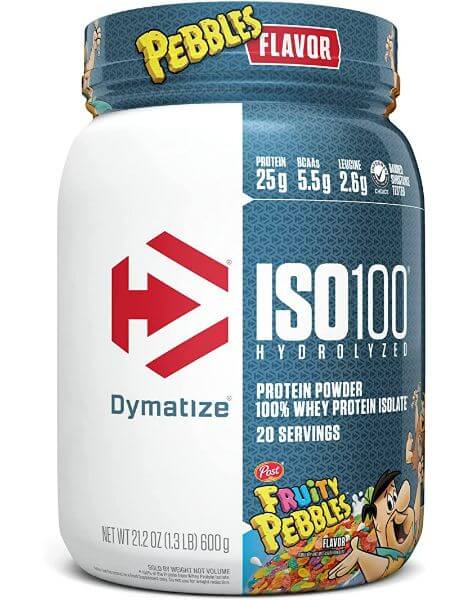
|
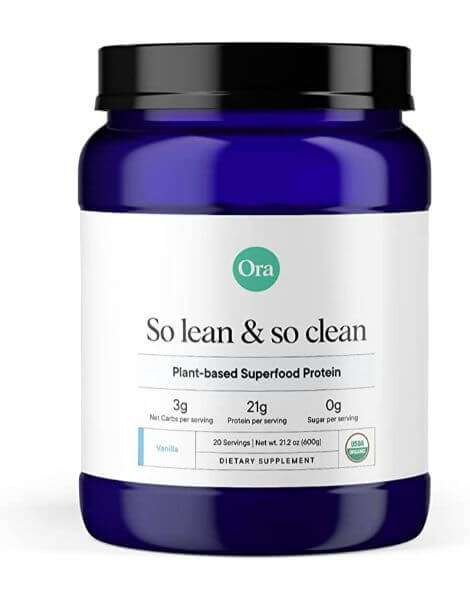
|
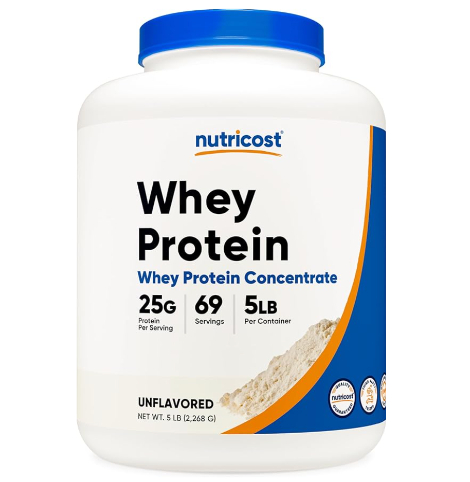
|
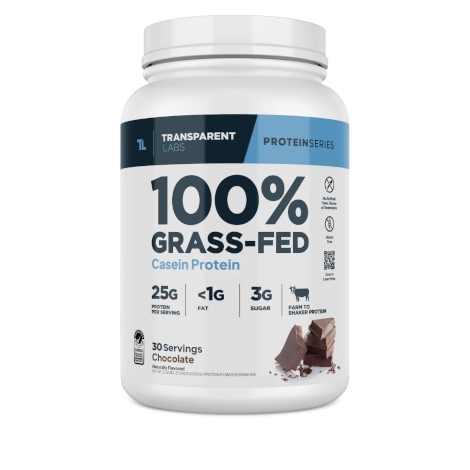
|
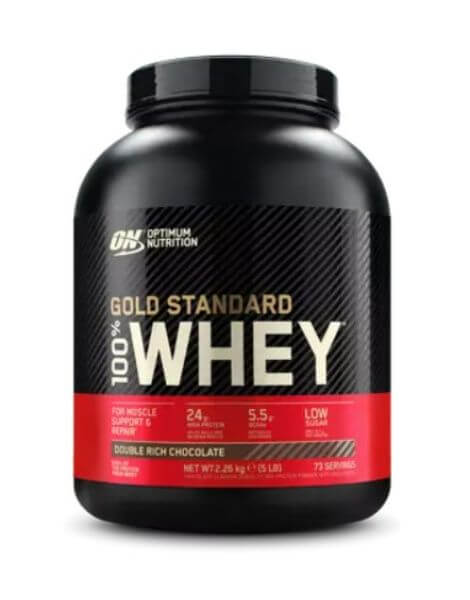
|
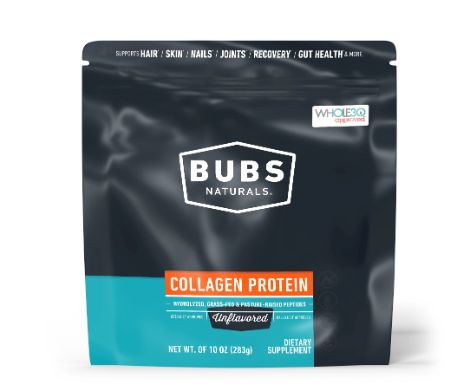
|
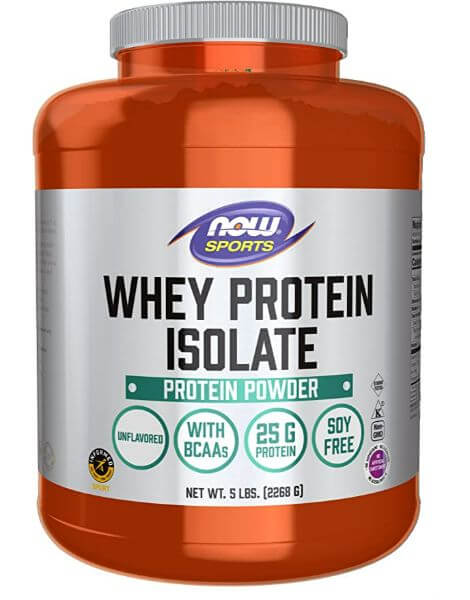
|
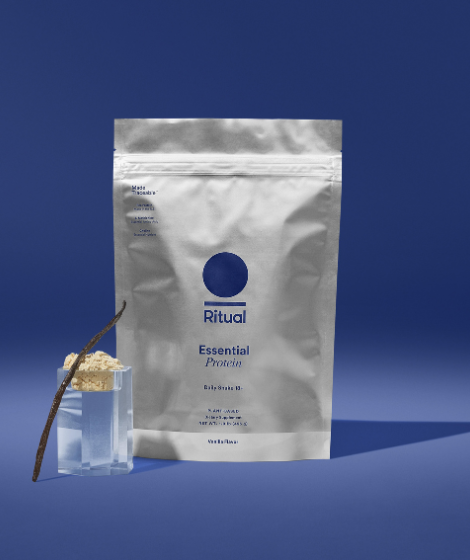
|
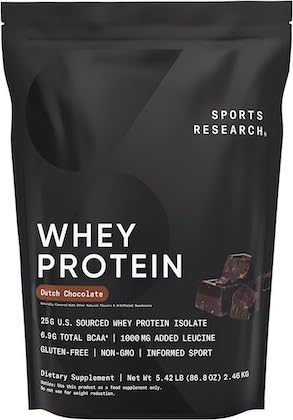
|
|
| Transparent Labs Whey Isolate | Legion Whey+ | Swolverine Plant Protein | Kaged Whey Isolate | Momentous Whey | Dymatize ISO 100 | Ora Organic Plant-Based | Nutricost Whey Concentrate | Transparent Labs Casein Protein | Optimum Whey Protein | BUBS Collagen Protein | NOW Whey Isolate | Ritual Protein | Sports Research Whey | |
|
Rating
|
||||||||||||||
| Price Per Serving | As low as $1.81 | $2.16 | $2.10 | As low as $1.70 | $2.39 | As low as $1.15 | $2.50 | As low as $0.87 | $1.99 | As low as $1.16 | $1.68 | As low as $1.22 | $3.27 | As low as $1.50 |
| Protein Per Serving | 28 g | Starting at 21g | 22 g | 25 g | 20 g | 25 g | 21 g | 25g | 25 grams of micellar casein per scoop | 24 g | 18 g | 25 g | 20g | 25g |
| Type | Whey protein isolate | Whey protein | Pea and pumpking protein | Whey isolate | Whey isolate | Hydrolyzed whey isolate | Pea and rice protein | Whey concentrate | Micellar casein protein | Whey protein | Bovine collagen peptide | Whey isolate | Pea protein | Whey isolate |
| Third-party Tested? | — | — | — | — | ||||||||||
| Calories Per Serving | 130 | 100 | 140 | 120 | 90 | 120 | 120 | 130 – 150 | 120 | 120 | 70 | 110 | 115 | 140 |
| Flavors | 21 flavors | 25 flavors | Chocolate Cake, Salted Caramel, and Vanilla Oatmeal Cookie | 5 flavors | 3 flavors | 13 Flavors | 4 flavors | 5 flavors | Chocolate | 23 | Unflavored | Unflavored | 1 flavor | Creamy vanilla, Dutch chocolate |
Best Overall Protein Powder: Transparent Labs 100% Grass-Fed Whey Protein Isolate
Updated by: Matt Dustin, CSCS, PN1-NC
Our testers love Transparent Labs 100% Grass-Fed Whey Protein Isolate because we know exactly what’s in it, and almost every flavor we’ve tried is a 5 out of 5 on taste. Yes, it’s a little more expensive than other protein powders but you get what you pay for.
Best Clean Protein Powder: Legion Whey+ Certified Grass-Fed Irish Whey Protein Isolate
Updated by: Matt Dustin, CSCS, PN1-NC
Legion Whey+ is a clean, sustainable protein powder that also is macro-friendly and a great option for anyone looking for a clean protein supplement. Many of our testers have bought this with their own money because they love the taste and easy mixability.
What our tester says:
“It tastes like the milk at the bottom of a bowl of Cinnamon Toast Crunch.”
Best Plant-Based Protein Powder: Swolverine Plant Protein
Updated by: Matt Dustin, CSCS, PN1-NC
Swolverine Plant Protein is a high-protein, plant-based blend that includes both pea protein isolate and pumpkin protein, offering a complete amino acid profile. It tastes great, but our testers reported that solubility can be a slight issue.
Best Chocolate Whey Protein Powder: Kaged Whey Protein Isolate
Updated by: Matt Dustin, CSCS, PN1-NC
Kaged Whey Protein Isolate is a fast-digesting protein powder with 25 grams of protein and just one gram of sugar per serving. Available in three flavors, we highly recommend Kaged if you’re a choco-holic.
Best Whey Protein Powder: Momentous Grass-Fed Whey Protein
Updated by: Matt Dustin, CSCS, PN1-NC
If you are willing to pay a premium price for a high-quality grass-fed whey protein, the Momentous brand is a solid choice. It is cold-pressed and put through a micro-processing filtration that’s supposed to preserve the protein’s amino acid profile. While we cannot confirm that, we know it tastes darn good and did not upset any stomachs during testing.
Best Budget Protein Powder: Dymatize ISO 100
Updated by: Matt Dustin, CSCS, PN1-NC
Available in 14 different flavors that will satisfy a wide range of taste buds, Dymatize ISO 100 is stacked with 25 grams of protein, including 5.5 grams of BCAAs and 4.4 grams of glutamine designed to enhance muscular growth and recovery. However, keep in mind that it’s sweetened with sucralose, and some flavors contain artificial ingredients.
Best Organic Protein Powder: Ora Organic Daily Superfood Plant Protein
Updated by: Matt Dustin, CSCS, PN1-NC
Ora Superfood Plant Protein combines a vegan protein and greens blend. Each serving has at least 21 grams of protein, 3 servings of greens, and digestive enzymes. Every single batch is third party tested for quality. Customer reviews are largely positive, customers like the high quality ingredients. There were mixed reviews on the taste including multiple complaints about the stevia aftertaste.
Best-Tasting Protein Powder: Nutricost Whey Protein Concentrate
Updated by: Matt Dustin, CSCS, PN1-NC
Nutricost Whey Concentrate contains 25 grams of high-quality whey protein concentrate per serving and is available in five flavors. It’s gluten-free, non-GMO, manufactured in a GMP-compliant facility, and third-party tested. Our team thoroughly enjoyed the taste, which is one of the most important factors when evaluating a protein powder.
Best Casein Protein Powder: Transparent Labs Casein Protein
Updated by: Matt Dustin, CSCS, PN1-NC
Transparent Labs Casein Protein provides 25 grams of protein per scoop and is extremely popular among users. This grass-fed protein powder is ideal for nighttime use, especially if you’re looking to maximize muscle growth and recovery.
Best Protein Powder for Muscle Gain: Optimum Nutrition 100% Gold Standard Whey
Updated by: Matt Dustin, CSCS, PN1-NC
Optimum Nutrition Gold Standard 100% Whey is a team favorite for its budget-friendly prices and taste. Our team has tried multiple Optimum Nutrition flavors, and every one is ranked a 4 or 5 out of 5.
Best Collagen Protein Powder: BUBS Naturals Collagen Protein Powder
Updated by: Matt Dustin, CSCS, PN1-NC
BUBS Naturals Collagen Protein is a collagen protein powder for people on the move. Not only does it mix well with most liquids, but it can also be purchased in travel packets for convenience. This collagen supplement is also certified by NSF Sport, the official third-party certification for the U.S. Anti-Doping Agency (USADA).
Best Unflavored Protein Powder: NOW Sports Whey Protein Isolate
Updated by: Matt Dustin, CSCS, PN1-NC
NOW Sports Whey Protein Isolate is an unflavored protein which delivers 25 grams of protein per serving, along with a good profile of BCAAs. This is a great budget-friendly option if you’re not concerned about taste.
Best Protein Powder for Weight Loss: Ritual Essential Protein Daily Shake
Updated by: Matt Dustin, CSCS, PN1-NC
Ritual’s Essential Protein Daily Shake has 20 grams of protein per serving and 150 milligrams of chlorine (to support brain and nervous system function).
What our tester says:
“I tried this two ways – in a blender cup with water, and in a smoothie with strawberries and blueberries. Even just with water, this has a nice taste.”
Best Protein Powder for Smoothies: Sports Research Whey Isolate
Updated by: Matt Dustin, CSCS, PN1-NC
Sports Research whey protein isolate has 25 grams of protein per serving and just 150 calories. It’s third-party tested, too. Although there are only two flavors available, our testers think it’s worth a try.
What our tester says:
“There’s no weird aftertaste, and I had zero issues with bloating after drinking it.”
Other Protein Powders We Researched
It might be hard to believe, but there are a few protein powders we came across during our research that didn’t make the mark. Hey, after trying more than 150, you’re bound to run into some that just don’t make the cut.
- Muscle Milk Genuine Protein Powder: We noted in our full Muscle Milk review that this protein powder is a great choice for people who are more active than the everyday person due to the higher caloric, carb, and fat content. If you fit that description, this might be the best protein powder for you.
- Bob’s Red Mill Almond Protein Powder: This plant-based protein powder is produced by Bob’s Red Mill, a company that primarily makes baking ingredients. While it does have 20 grams of protein per serving, the fat and carb content is higher than we’d like to see, and the per-serving cost is high at $1.85. It’s also only made from ground almonds, which are an incomplete protein.
- BSN Syntha-6: A mixture of whey protein and casein protein, BSN Syntha-6 is a fairly affordable protein powder (around $1.50 per scoop) that some might consider a meal replacement shake (each serving is 200 calories with a moderate amount of carbs and fats). It has a longer ingredient list than we would like and can contain up to 4 grams of added sugar (depending on the flavor).
- Ka’Chava Meal Replacement: $4.67 per serving…no, that’s not a typo. Customers were impressed with the taste and those trying to lose weight found it to be a suitable meal replacement. It also has the advantage of being higher in micronutrients (vitamins and minerals) than other protein supplements. Our Ka’Chava review has our full thoughts.
- Bare Performance Nutrition Whey Protein: Anthony O’Reilly, a certified personal trainer and nutrition coach, tried Bare Performance Nutrition Whey Protein years ago. “I recall being a big fan of their product when I first got into weightlifting,” he says. The protein powder is a whey and casein blend, so it’s a little thicker than most whey proteins and is perfect for protein sludge (my favorite recipe actually comes from BPN founder Nick Bare). The flavors, as I recall, are all great, but if I had to pick just one I’d go with Blueberry Muffin.
- Orgain Grass-Fed Whey Protein: Many of Orgain’s protein powders are organic, however, this one is not and it contains more carbs and fats than we typically like to see in a protein powder. Our Orgain Grass-Fed Whey Protein Review has our complete breakdown.
- Ghost Whey Protein: Ghost Whey Protein comes in a lot of fun flavors, such as an officially-licensed Chips Ahoy option, but as we note in our Ghost Whey protein review there are a few things that kept it from making our list (such as the price per serving).
- Bloom Whey Isolate Protein: This protein powder is a TikTok trend. Our Bloom protein review looks into whether it’s worth the hype.
- SEEQ Protein Powder: You’ve probably seen this clear whey protein isolate and thought, “Is it any good?” Our SEEQ protein powder review answers that question.

How We Picked and Tested the Best Protein Powder
There are more than 400 brands creating what they claim to be the best protein powder, according to marketing analysis firm Lumina Intelligence5. We’ll say right now that we didn’t try nearly that many, but we were able to narrow down our selections by using our GGR supplement testing methodology.
We also worked with a registered dietitian to develop our protein-specific testing method, which accounts for a number of factors.
Protein Content
Obviously, a good protein powder should have a high amount of protein—our top picks have protein content ranging from 19 to 30 grams. In order to score a perfect 5 out of 5 for protein content, we insist that a supplement has at least 18 to 20 grams of protein per serving. Some protein powders contain substantial amounts of other macronutrients (fats and carbohydrates)—we call that out because many people who drink protein shakes are looking to maximize their protein intake.
Carb and Fats
We also wanted to make sure each selection had a low or moderate carb and fat content (it should, after all, be mostly protein). If a protein is loaded with carbs, it could be considered one of the best mass gainers instead of just a protein powder for weight gain.
Digestibility and Side Effects
We had each product tester report back on any potential side effects. For example, how well did the protein powder digest? Did it cause any digestive issues or bloating? You will often find enzymes in protein derived from dairy sources to help with the breakdown.
Flavor and Taste
Did it taste good? We know taste is subjective, so we had multiple people try many of the options on our list, and we also consulted customer reviews. Products that earn high marks here get favorable taste reviews from both customers and our internal testers. Also, while we wouldn’t rate a product low for a lack of flavor options, we do give credit to companies that offer customers a number of flavors.
Ingredients
Protein powders get bonus points for having a short ingredients list. Things like artificial sweeteners and fillers have potential negative health impacts, and we don’t want large amounts of them in a protein supplement9. On the flip side, protein powders often come with additional ingredients, such as creatine, digestive enzymes, or probiotics.
Protein Source
The source of the protein matters because we recommend complete proteins. Therefore, we research whether the protein powder comes from whey, casein, egg white, or plant-based sources (such as pea protein, rice protein, chia seeds, or brown rice). If the protein comes from an incomplete source, are there additional ingredients to make it a complete source10? If not, the product would score low with our testers.
Amino Acids
Did each protein powder have all nine essential amino acids? This is especially important for plant-based protein sources as every one, with the exception of soy and technically pea, is an incomplete protein. Companies work around this by using complementary proteins, which involve combining two or more protein sources to obtain all essential amino acids in their supplement11.
Solubility
We personally mixed protein powders with water, with milk, or milk substitutes to test for solubility. Our testers put the powders in a shaker cup and used blenders to assess: How well does this product dissolve in the suggested amount of liquid? Does it separate after a few minutes? To earn a 5 out of 5, a protein powder has to dissolve completely, with no floaters or clumps, and no separation after resting for a few minutes.
Price Per Serving
The price per serving can range from $1.25 on the low end to upwards of $2 on the high end. Protein powders with a more affordable cost per serving were rated higher than those that cost $2 or more per scoop.
Third-Party Testing
Since dietary supplements are not approved by the FDA, having an independent third-party lab verify that what’s on the label is what’s in the protein powder is super important, especially for athletes. We favored companies that had their products tested for heavy metals, toxins, or banned substances.
Benefits of Protein Powder
Wondering why you should consider purchasing or using protein powder? Here are a few reasons:
- It’s convenient. It’s much easier and quicker to chug 8 ounces of protein powder (mixed with the liquid of your choice) than it is to defrost, prepare, cook, and eat a piece of meat (not to mention the clean-up). It may not be as portable as a No Cow protein bar, but at least it’s quick.
- It’s shelf-stable. Does protein powder expire? Well, it definitely doesn’t last forever, but protein powder can last a surprisingly long time on your shelf if properly sealed and kept out of direct sunlight.
- It helps build muscle1. There are mountains of evidence supporting the use of protein powder to help build muscle.
- It can support weight loss efforts3. Protein powder can also be used for those who are on a weight loss plan. Protein requires more energy to digest than do fats and carbohydrates, leading to a higher calorie burn.
Dr. Raj Dasgupta, MD, FACP, FCCP, FAASM, GGR’s Chief Medical Advisor, also pointed out that all genders can enjoy the health benefits from protein powder, even if your goal isn’t to build muscle.
“Protein powder may help both men and women build muscles, manage weight, and stay healthy,” says Dr. Dasgupta. “Men, who usually have more muscle, might require more protein, but protein powder can be a good option for anyone looking to improve fitness, recover after workouts, and stay healthy.”
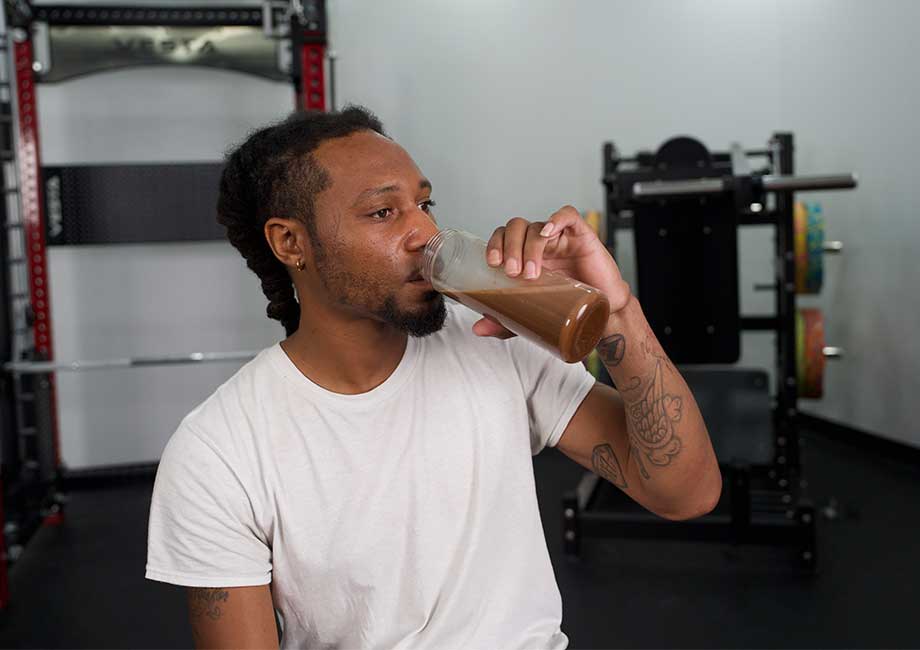
Buying Guide: What to Look for in Protein Powder
Protein powders will try to draw you in with colorful labels and attractive claims, but here’s what you should actually look for when you’re trying to decide which is the best protein powder for you.
Calorie Content
This might change depending on your fitness goal. For example, if you’re looking to bulk (or add muscle), you’d want more calories than someone whose main goal is weight loss.
Protein Content
You should generally look for a protein powder with at least 20 grams of protein per serving to help build muscle and keep you full.
Protein Type
Most protein powders come from whey protein, but there are different protein types, the two most common alternatives being casein protein powder and plant-based protein powders. Casein is also a dairy-based protein that digests more slowly than whey, which is why athletes will often take it before going to sleep.
RELATED: Best Recovery Protein Powder
There are also meal replacements, sometimes called mass gainers, which contain an entire meal’s worth of protein, carbohydrates, and fats. Mass gainers are primarily used for people looking to add muscle mass, but can also be utilized by those trying to reduce their body weight.
Taste
Find a flavor you like. Most protein powders will come in dessert-themed flavors, though there are now companies producing more fruity flavors that mix well with water. You can also choose unflavored protein powders if you wish to bake with it or add it to other foods without impacting the taste.
Price
Self-explanatory, but find a protein powder that works for your budget. Most of the best protein powders will be around $1.50-$2.00 per scoop with 30 servings, though you can find more affordable protein powders for around $1.10 per scoop.
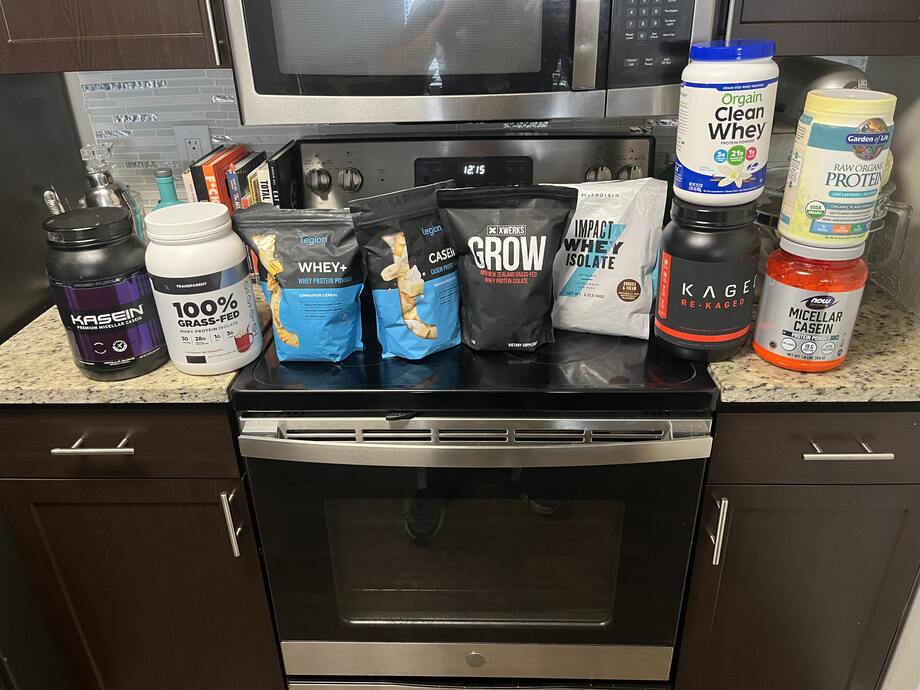
Fitness Goals
Protein is obviously essential for building muscle, but how much you need depends on your fitness goals. For people on a cut, you’ll want a whey isolate for an extra boost of protein without extra fat or carbs. If you actually want those extra calories while on a bulk, go for a whey concentrate or a full-on mass gainer to make your shakes more of a meal. Before making any purchase, start by looking at what you actually want your protein powder to accomplish. Chances are, there’s a perfect fit out there.
Third-Party Testing
Remember to always check the third-party testing credentials of your protein powder before you buy. If the product has been tested, it will typically be noted on the packaging and on the product website. Check whether the company is certified by NSF, Informed Choice/Sport, or other reputable organizations, and whether the test results are available on the brand’s website. These tests will show results for a range of potential contaminants in your protein powder, including heavy metals, harmful additives, and banned substances.
Allergens and Dietary Preferences
Along with third-party testing, you’ll want to research all potential allergens in any protein powder you’re considering purchasing. This includes obvious ones like wheat, nuts, and milk, along with shellfish, tree nuts, and fish oil. Even if it doesn’t seem like a protein powder would include any of these ingredients on the surface, there’s always the potential for cross-contamination at the manufacturing facility.
You might have to avoid certain brands depending on the type of allergy you have. In other cases, like with lactose intolerance, you could just opt for a dairy-free powder. These plant-based powders typically come from rice, pea, or pumpkin protein and are just as effective as dairy-based powders. Remember, plant-based powders should be third-party tested just like dairy powders, so don’t let your guard down.
What to Avoid in Protein Powders
Protein powders are going to mostly be protein, but some formulations will have other ingredients added, too. Here are a few ingredients to look for—or in some cases, look out for.
Sweeteners
Unflavored protein powders are usually great to add to baked goods or flavorful smoothie drinks, but they aren’t going to be great in a shaker cup with water or milk. Flavored protein powders will usually have some sort of sweetener added to help with the flavor.
Sweeteners can be anything from natural ingredients, like sugar or zero-calorie stevia, or it can be an artificial sweetener, like sucralose.
“Despite what the media says, RDs are not entirely convinced that artificial sweeteners are bad for your health,” says Destini Moody, RD. “That said, people should be wary of sugar alcohols in their protein powder as these are low-calorie sweeteners that do not break down well in the gut and excess consumption can cause gas, stomach cramps and diarrhea.”
Filler Ingredients
While some additives and ingredients are used to help preserve the protein powder, other ingredients are there just to help fill up the tub or container. Avoid filler ingredients like maltodextrin or cornstarch, and check the label. You also want to avoid powders that are loaded with excess sugars or thickeners like xanthan gum that may cause digestive issues.
If possible, avoid protein powders that have a laundry list of ingredients, aiming for options that keep it simple. You’ll also want to check for any allergens and, if applicable, whether your protein powder is kosher or halal.
Amino Acids
Some protein powders have added amino acids, which can be a nice addition. However, remember that protein has essential amino acids, and the added amino acids are usually non-essential. So, make sure that you’re still getting a good amount of protein per serving. Creatine is also sometimes added, but the same rule applies. Plus, you can usually find quality creatine at a good price on its own.
Caffeine
A common flavor of protein powder now is based on coffee, with Cappuccino, Mocha, or Latte flavors being prevalent in many brands. Consumers should be aware, though, that these protein powders can have caffeine added to them. If you’re sensitive to caffeine or looking to cut back, you should opt for other flavors. Make sure to check the ingredient label to see if it is actually in the powder, too.
RELATED: Best Pre-Workouts
Carbs and Fat Content
Although there are times when carbohydrates should be paired with protein, specifically after intense training sessions, most people should look for a protein powder that’s mostly, well, protein. There should be minimal carbs and fats, ideally under 5 grams of each.
Untested Supplements and Proprietary Blends
Athletes should consider protein powder that has Informed Sport, Certified for Sport, or any third-party certifications. These marks show that they’ve been third-party tested for banned substances, heavy metals, and toxins.
For instance, brands that scored highly in our own independent testing of more than 150 protein powders with an independent accredited lab, Ellipse Analytics, got extra points in our book. Ellipse Analytics analyzed batches of protein powder to check for the presence of potential contaminants, like:
- Bisphenols and phthalates: Chemical compounds used to make plastic products.
- Pesticides: Chemicals used on crops and plants for pest control and the treatment of weeds.
- Heavy metals: Metals such as lead that may negatively affect your health with chronic exposure, according to a November 2022 study6.
Transparency also plays a part in this. Does the company provide COAs, not use proprietary blends, and generally seem very upfront about what’s used in their protein powder and why?
Lastly, avoid any protein supplement that has proprietary blends. These blends are a mix of different ingredients, and manufacturers aren’t required to disclose how much of each ingredient is in the blend—oftentimes, companies can underdose ingredients.
Lead and Other Heavy Metals
In October 2025, Consumer Reports published an article about the lead levels in several popular protein powders. Of the 23 powders the outlet tested, two-thirds contained “more lead than [Consumer Reports’] food safety experts say is safe to consume in a day—some by more than 10 times.” The plant-based options averaged around nine times the lead levels found in their dairy-based counterparts.
Consumer Reports’ food safety experts say 0.5 micrograms of lead per day is the maximum dosage they consider “safe;” a figure based in part on those set by California’s Proposition 65 law but using a different methodology to determine risk. Conversely, the United States Food and Drug Administration’s (FDA) interim reference levels (IRLs) for lead are 2.2 micrograms per day for children and 8.8 micrograms for adults.
According to an archived page on the FDA website, an IRL, “Is a benchmark the FDA may use to determine if the amount of exposure to the contaminant in food is a potential health concern.” The FDA states that these IRLs are, “Nearly ten times lower than the amount of lead intake from food that would be required to reach the CDC’s blood reference level.”
Though studies have shown that the amount of lead found in protein powders isn’t enough to impact your health on its own13, it’s still something you’ll want to research before making a purchase. This is especially important since you also have to account for trace amounts of lead found in all the food you eat throughout the day.
We previously reached out to Dr. Sean Callan, a neuroscientist and the CEO of Ellipse Analytics, an independent lab that GGR used for third-party supplement testing. He explained how lead and other heavy metals are absorbed by plants and then passed on to animals and humans who eat them, which explains why plant-based powders ranked so high for lead content.
“It is the position of most major medical authorities, including the American Medical Association, the U.S. Food and Drug Administration, and the World Health Organization, that there is no safe level of lead,” according to Dr. Callan. “As these metals occur naturally, achieving ‘absolute zero’ is not possible, but seeking out products that have been tested by a third party is a good way to reduce your overall exposure.”
Studies show that adults average between 1.7 and 5.3 micrograms of lead exposure from food per day14. Even if you’re comfortable with the amount of lead potentially found in your protein powder, you should look at those numbers as part of a whole.
The best way to get peace of mind is to go to the supplement company directly for more information. Legion, for example, utilizes Labdoor, an independent third-party lab, to test its products for heavy metals, allergens, and assorted contaminants. Once the results are in, the company posts them online for visibility’s sake.
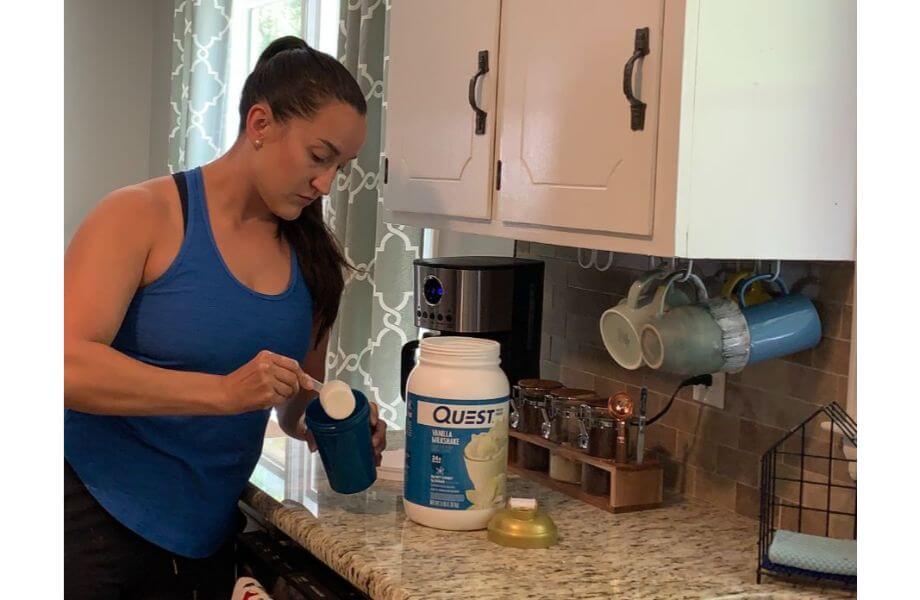
Types of Protein Powder
Even though we have our pick for the best protein powder, there are many people who may disagree due to dietary or religious reasons—there are some religions that prohibit the consumption of dairy. No worries, as there are many different types of protein powder supplements to help you reach your health and wellness goals.
Whey Protein Powder
Whey protein powder is the most common type of protein powder, and it comes from whey (shocking, we know). Whey is the liquid left behind after milk has been processed and is used in multiple applications, such as cheese-making or producing protein powder.
The pros of whey protein (which may sometimes be called whey protein concentrate) are that it’s cheap and readily available, though people with dairy sensitivities may find it difficult to digest. In fact, people who are able to eat or drink milk-based products sometimes struggle with whey protein powder (it can result in some rumbling down under, if you catch our drift). Luckily, there are two other types of whey protein powder:
- Whey protein isolate: Whey protein isolate is simply whey protein that’s undergone additional filtering to remove much of the lactose (aka sugars), which results in a lower-carb, lower-fat protein powder that’s also easier to digest than normal whey protein.
- Whey protein hydrolysate: This whey protein has been pre-digested through a special process that increases the rate of absorption.
Casein Protein Powder
Casein is another byproduct of the cheese-making process, and while it’s not nearly as popular as whey protein, it contains just as much protein and micronutrients. It’s made by adding a curdling agent to milk, which then becomes lumpy. Those curdles are then either made into cheese or casein protein powder (after being dehydrated and processed, of course).
You’ll often see casein protein powder in meal replacement shakes for two reasons: It’s thicker than whey protein and digests more slowly. It’s more like a pudding than a shake, which will give your body the feeling that you’re eating more food than you actually are. And because it’s digested more slowly than whey protein, it’s a great type of protein to take before going to bed or when you know you might not be able to eat for a few hours.
Plant-Based and Vegan Protein Powders
Plant-based or vegan protein powders are dairy-free alternatives that source their protein from soy, plants, or other food sources. Here is a list of the most common plant-based proteins:
- Soy
- Pea
- Hemp
- Lentil
- Chia Seed
- Pumpkin Seed
- Brown Rice
If you’re looking for a vegan or plant-based protein powder, make sure to pay extra attention to the amino acid profile. As we discussed earlier, a protein needs nine of the essential amino acids to be a complete protein and aid in muscle growth or satiety (the feeling of being full). Soy protein powder and (technically) pea and hemp are complete plant-based protein sources, whereas other popular options like rice protein are not.
Does that mean plant-based and vegan protein powders don’t work? Not necessarily, since they may use complementary proteins—basically, a company will add rice protein and hemp protein since one may have the essential amino acids that the other lacks.
Some of the best protein powders have their full amino acid profile on the label, so if you’re a plant-based lifter, be sure to look for this on the tub or the company’s website.
Pea Protein Powder
Pea protein powder is a plant-based protein source created from yellow peas and is very high in micronutrients. Technically, it contains all nine essential amino acids, so it’s considered a complete protein, but it is low in methionine. It’s also not as bioavailable as other protein types.
Egg Protein Powder
Egg protein powder comes from eggs, and while it can be a great option for those who can’t drink dairy, we should warn you that egg protein powder often comes with an unsavory taste and smell.
RELATED: Best Paleo Protein Powder
Meal Replacements and Mass Gainers
Meal replacement shakes often have more calories and protein (along with additional carbs and fat) than your standard protein powder because they’re made to mimic an entire meal’s worth of fuel. These are used by people who are trying to lose weight or those who don’t have enough time to eat a full plate of food.
Mass gainers are a type of meal replacement shake used by powerlifters or bodybuilders who are trying to put on as much weight as possible, and as a result, contain thousands of calories. Some mass gainers contain more calories and protein in one scoop than some people drink in an entire day, and they should only be used under the supervision of a dietary professional.
RELATED: Onnit Total Human review
Clear Whey Protein Isolates
A relative newcomer to the protein powder scene, clear whey protein isolates have been hydrolysed to be much more soluble and clear than regular protein shakes. The best clear whey protein drinks have a juice-like taste, rather than the milk-forward flavors you see in supplement stores, and may be a good choice for anyone with lactose sensitivities or anyone who prefers a more refreshing post-workout drink.
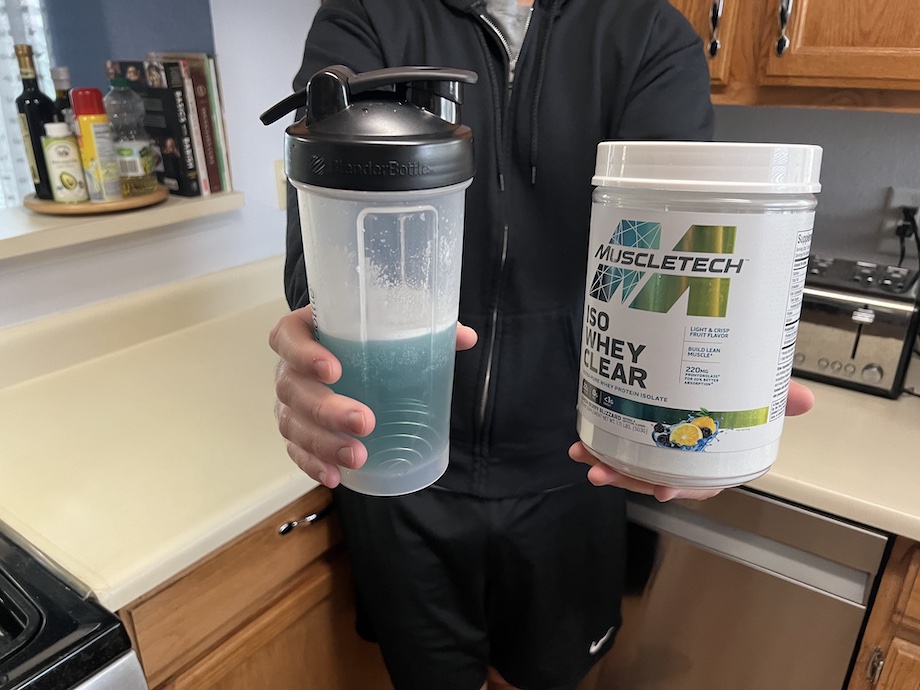
Types of Protein at a Glance
Below, you’ll find a quick summary of the different protein sources on the market:
| Protein Type | Digestion Speed | Complete Protein? | Best For? | Additional Considerations |
| Whey Protein | 10 g/hour15 | Yes | People who can digest dairy and are looking for a dependable protein source. | Aim for whey powders with at least 20 g of protein per serving. |
| Whey Protein Isolate | 8-10 g/hour | Yes | People who want to take advantage of whey isolate’s lower fat and carb content. | These products will be more expensive than regular whey protein. |
| Egg Protein | 3 g/hour15 | Yes | Anyone who wants a complete protein that is dairy-free. | You might experience an egg-y aftertaste or smell. |
| Plant Protein | Varies based on the source. | Depends on the source. Soy is complete, pea is incomplete, but a pea and brown rice blend is complete. | Athletes following a plant-based diet or those who are lactose intolerant. | Different sources yield different benefits. Make sure you research the ingredients. |
| Casein Protein | 5-6 g/hour16 | Yes | People who train at night and prefer to have a protein shake before bed. | Casein protein will be thicker than whey powders. |
How to Take Protein Powder
Purchasing the right protein powder for your fitness goals is the first step. Next, you have to figure out how you want to take it. You could try the path of least resistance and simply scoop some into a shaker bottle with water or your favorite dairy/non-dairy milk.
For a bigger nutritional punch, you could blend the powder with ice, your choice of liquid, and some fruit to make a protein smoothie. If you’re tired of cleaning blenders and shaker cups, you could also mix protein powder into oats, yogurt, or incorporate it into a muffin recipe. The sky’s the limit here.
How Much Protein Do You Need Per Day?
This is perhaps the most loaded question in the fitness industry, but we’ll break it down as best we can.
Previously, the United States recommended 0.8 grams of protein per kilogram of body weight (0.36 grams per pound) for adults 18 and up. So, if you weigh 90 kilograms (~200 pounds), you would aim for 72 grams of protein per day. The EU follows similar guidelines17, recommending people get .83 grams of protein per kilogram of body weight.
In 2026, the Department of Health and Human Services (HHS) and the United States Department of Agriculture (USDA) published updated guidelines18 that increased the daily protein recommendation to a range of 1.2 to 1.6 grams per kilogram of body weight (0.54 to 0.72 grams per pound).
RELATED: How Much Protein Is Too Much?
Now, that same 200-pounder is recommended to get anywhere from 108 to 144 grams of protein per day. For anyone who is physically active, the HHS recommends a narrower range of 1.4 to 1.6 grams for, “Maintenance of lean mass and metabolic health.”
In terms of research on the subject, there is a lot of it. One 2016 study from the journal Food & Function19 places protein requirements between past and current government recommendations. It recommends 0.8 grams per kilogram of body weight for adults who perform minimal physical activity followed by 1, 1.3, and 1.6 grams for, “Adults who perform minimal, moderate, and intense physical activity, respectively.”
“If you are regularly physically active, you may have increased protein needs of 1.1 to 1.5 grams per kilogram per day,” says Perry Nix, MS, RD, LD. “If you do strength training or are training for an endurance event, an even higher protein intake of 1.2 to 1.7 grams per kilogram per day may be appropriate.”
Still have questions? You can always consult a medical professional for a more tailored opinion based on your activity level and nutritional needs.
Best Protein Powders at a Glance
As you can tell, there is a lot to consider when picking the right protein powder for your needs. Here’s a mile-high look at the most important factors:
| Type of Protein | Protein Per Serving | Calories | Sweetener | Best For | Flavors Available | Price Per Serving | |
| Transparent Labs 100% Grass-Fed Whey Protein Isolate | Whey Isolate | 28 g | 130 | Stevia | Best Overall | 21 | As low as $1.81 |
| Legion Whey+ Certified Grass-Fed Irish Whey Protein Isolate | Whey Isolate | 22-24 g | 100-130 | Stevia | Best Clean Protein Powder | 25 | $2.16 |
| Swolverine Plant Protein | Plant-Based | 25 g | 140 | Stevia | Best Plant-Based Protein Powder | 3 | $2.10 |
| Kaged Whey Protein Isolate | Whey Isolate | 25 g | 110 | Sucralose | Best Chocolate Whey Protein Powder | 3 | As low as $1.70 |
| Momentous Essential Grass-Fed Whey | Whey Isolate | 23.3 g | 90-100 | Stevia | Best Whey Protein Powder | 8 | $2.39 |
| Dymatize ISO 100 | Hydrolyzed whey protein isolate | 25 g | 110-120 | Sucralose | Best Budget Protein Powder | 14 | As low as $1.15 |
| Ora Organic Daily Superfood Plant Protein | Plant-Based | 23 g | 130 | Monk Fruit | Best Organic Protein Powder | 4 | $2.99 |
| Nutricost Whey Protein Concentrate | Whey Protein Concentrate | 25 g | 130-150 | Sucralose | Best-Tasting Protein Powder | 9 | As low as $0.87 |
| Transparent Labs Casein Protein | Micellar Casein | 25 g | 120 | Stevia | Best Casein Protein Powder | 1 | $1.99 |
| Optimum Nutrition Gold Standard 100% Whey | Whey Protein Blend | 24 g | 120-130 | Sucralose | Best Protein Powder for Muscle Gain | 23 | As low as $1.16 |
| BUBS NATURALS Collagen Protein Powder | Hydrolyzed Collagen Peptides | 18 g | 70 | N/A | Best Collagen Protein Powder | 1 | $1.67 |
| NOW Sports Whey Protein Isolate | Whey Isolate | 25 g | 110 | Stevia (Flavored Options Only) | Best Unflavored Protein Powder | 3 | As low as $1.22 |
| Ritual Essential Protein Daily Shake | Plant-Based | 20 g | 115 | Monk Fruit | Best Protein Powder for Weight Loss | 1 | $2.93 |
| Sports Research Whey Isolate | Whey Isolate | 25 g | 140 | Steviol Glycosides | Best Protein Powder for Smoothies | 2 | As low as $1.50 |
Best Protein Powder FAQs
Which brand is best for protein powder?
The best brand of protein powder should offer high-quality ingredients without a lot of junk or fillers, have a sufficient amount of protein per serving, and be third-party tested for banned substances and potential contaminants. It’s even better if the company discloses the lab results. Some of our favorite brands that fit most—if not all—of these criteria are Transparent Labs, Legion, Sports Research, and Momentous.
How much protein powder can you have per day?
Protein powder is a supplement, meaning it supplements your overall diet. The majority of your calories and protein should come from whole food sources like meats, plants, and dairy. That said, protein powder is a cost-efficient and convenient way to increase your protein intake and can be taken one to two times per day with no adverse side effects.
If you have any concerns, we recommend speaking with a healthcare professional.
What is the best way to use protein powder?
There are several ways to use protein powder. After a workout, you can mix a scoop with water or milk (dairy or plant-based) in a shaker bottle for a quick, easy post-workout treat. You can use it to increase the protein content of your favorite breakfast foods and baked goods, like pancakes or cookies. When you’re crunched for time and can’t cook a meal, you can blend it into a smoothie with fruit, vegetables, and nut butter for a meal replacement shake.
How long does protein powder last?
Most protein powders can last between 9-18 months depending on how it’s stored (whether there’s a tight seal), the temperature (humidity can cause it to clump), and the powder itself. Most supplements have an expiration date on the container. If the powder smells bad or looks weird, don’t consume it.
These statements have not been evaluated by the Food and Drug Administration. This product is not intended to diagnose, treat, cure, or prevent any diseases.
References
- Stokes, T., Hector, A. J., Morton, R. W., McGlory, C., & Phillips, S. M. (2018). Recent Perspectives Regarding the Role of Dietary Protein for the Promotion of Muscle Hypertrophy with Resistance Exercise Training. Nutrients, 10(2), 180.
- Townsend, J. R., Morimune, J. E., Jones, M. D., Beuning, C. N., Haase, A. A., Boot, C. M., Heffington, S. H., Littlefield, L. A., Henry, R. N., Marshall, A. C., VanDusseldorp, T. A., Feito, Y., & Mangine, G. T. (2020). The Effect of ProHydrolase® on the Amino Acid and Intramuscular Anabolic Signaling Response to Resistance Exercise in Trained Males. Sports (Basel, Switzerland), 8(2), 13.
- Leidy, H. J., Clifton, P. M., Astrup, A., Wycherley, T. P., Westerterp-Plantenga, M. S., Luscombe-Marsh, N. D., Woods, S. C., & Mattes, R. D. (2015). The role of protein in weight loss and maintenance. The American journal of clinical nutrition, 101(6), 1320S–1329S.
- Martínez-Puig, D., Costa-Larrión, E., Rubio-Rodríguez, N., & Gálvez-Martín, P. (2023). Collagen Supplementation for Joint Health: The Link between Composition and Scientific Knowledge. Nutrients, 15(6), 1332.
- Lumina Intelligence. (2020, July 31). Sports Nutrition Market: Size, trends and analysis. Accessed September 13, 2025.
- Olufemi, A. C., Mji, A., & Mukhola, M. S. (2022). Potential Health Risks of Lead Exposure from Early Life through Later Life: Implications for Public Health Education. International journal of environmental research and public health, 19(23), 16006.
- Alothman, M., Hogan, S. A., Hennessy, D., Dillon, P., Kilcawley, K. N., O’Donovan, M., Tobin, J., Fenelon, M. A., & O’Callaghan, T. F. (2019). The “Grass-Fed” Milk Story: Understanding the Impact of Pasture Feeding on the Composition and Quality of Bovine Milk. Foods (Basel, Switzerland), 8(8), 350.
- Campos, L. D., Santos Junior, V. A., Pimentel, J. D., Carregã, G. L. F., & Cazarin, C. B. B. (2023). Collagen supplementation in skin and orthopedic diseases: A review of the literature. Heliyon, 9(4), e14961.
- Kossiva, L., Kakleas, K., Christodouli, F., Soldatou, A., Karanasios, S., & Karavanaki, K. (2024). Chronic Use of Artificial Sweeteners: Pros and Cons. Nutrients, 16(18), 3162.
- Arentson-Lantz, E., Von Ruff, Z., Harvey, M., Wacher, A., & Paddon-Jones, D. (2021). A Moderate Serving of a Lower-Quality, Incomplete Protein Does Not Stimulate Skeletal Muscle Protein Synthesis. Current Developments in Nutrition, 5(Suppl 2), 487.
- Church, D. D., Hirsch, K. R., Park, S., Kim, I. Y., Gwin, J. A., Pasiakos, S. M., Wolfe, R. R., & Ferrando, A. A. (2020). Essential Amino Acids and Protein Synthesis: Insights into Maximizing the Muscle and Whole-Body Response to Feeding. Nutrients, 12(12), 3717.
- West, S., Monteyne, A. J., Whelehan, G., van der Heijden, I., Abdelrahman, D. R., Murton, A. J., Finnigan, T. J. A., Stephens, F. B., & Wall, B. T. (2023). Ingestion of mycoprotein, pea protein, and their blend support comparable postexercise myofibrillar protein synthesis rates in resistance-trained individuals. American journal of physiology. Endocrinology and metabolism, 325(3), E267–E279.
- Bandara SB, Towle KM, Monnot AD. A human health risk assessment of heavy metal ingestion among consumers of protein powder supplements. Toxicol Rep. 2020 Aug 21;7:1255-1262. doi: 10.1016/j.toxrep.2020.08.001. PMID: 33005567; PMCID: PMC7509468.
- Gavelek A, Spungen J, Hoffman-Pennesi D, Flannery B, Dolan L, Dennis S, Fitzpatrick S. Lead exposures in older children (males and females 7-17 years), women of childbearing age (females 16-49 years) and adults (males and females 18+ years): FDA total diet study 2014-16. Food Addit Contam Part A Chem Anal Control Expo Risk Assess. 2020 Jan;37(1):104-109. doi: 10.1080/19440049.2019.1681595. Epub 2019 Oct 24. PMID: 31647750.
- Schoenfeld BJ, Aragon AA. How much protein can the body use in a single meal for muscle-building? Implications for daily protein distribution. J Int Soc Sports Nutr. 2018 Feb 27;15:10. doi: 10.1186/s12970-018-0215-1. PMID: 29497353; PMCID: PMC5828430.
- Joy, J.M., Vogel, R.M., Shane Broughton, K. et al. Daytime and nighttime casein supplements similarly increase muscle size and strength in response to resistance training earlier in the day: a preliminary investigation. J Int Soc Sports Nutr 15, 24 (2018). https://doi.org/10.1186/s12970-018-0228-9
- European Food Safety Authority (2019, February 9). EFSA sets population reference intakes for protein. European Food Safety Authority. https://www.efsa.europa.eu/en/press/news/120209
- Department of Health and Human Services. (2026, January 7). The Scientific Foundation For The Dietary Guidelines For Americans. Department of Health and Human Services. https://cdn.realfood.gov/Scientific%20Report_1.8.26.pdf
- Wu G. Dietary protein intake and human health. Food Funct. 2016 Mar;7(3):1251-65. doi: 10.1039/c5fo01530h. PMID: 26797090.






